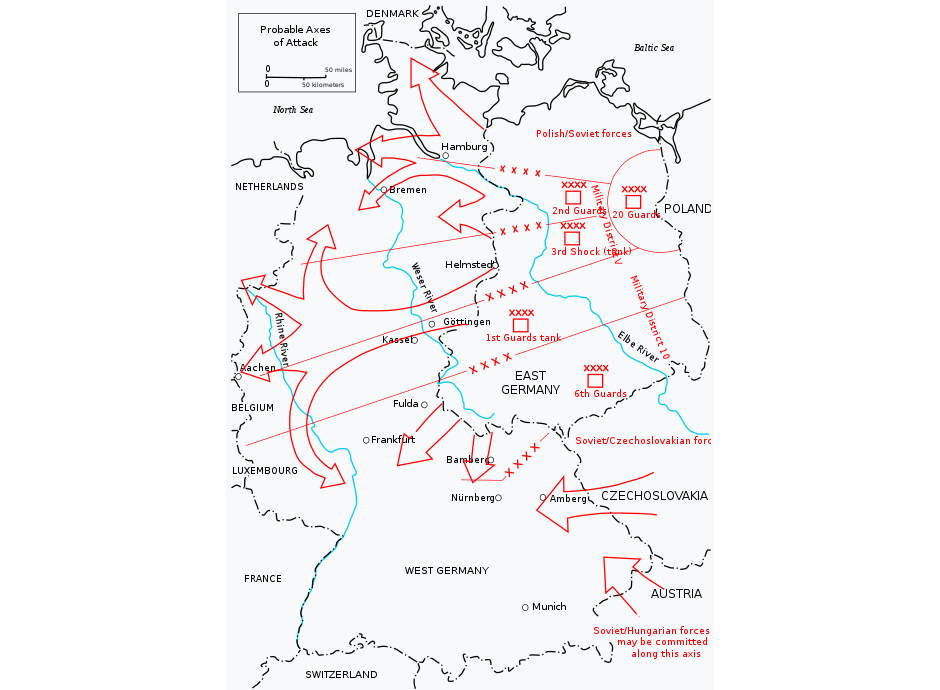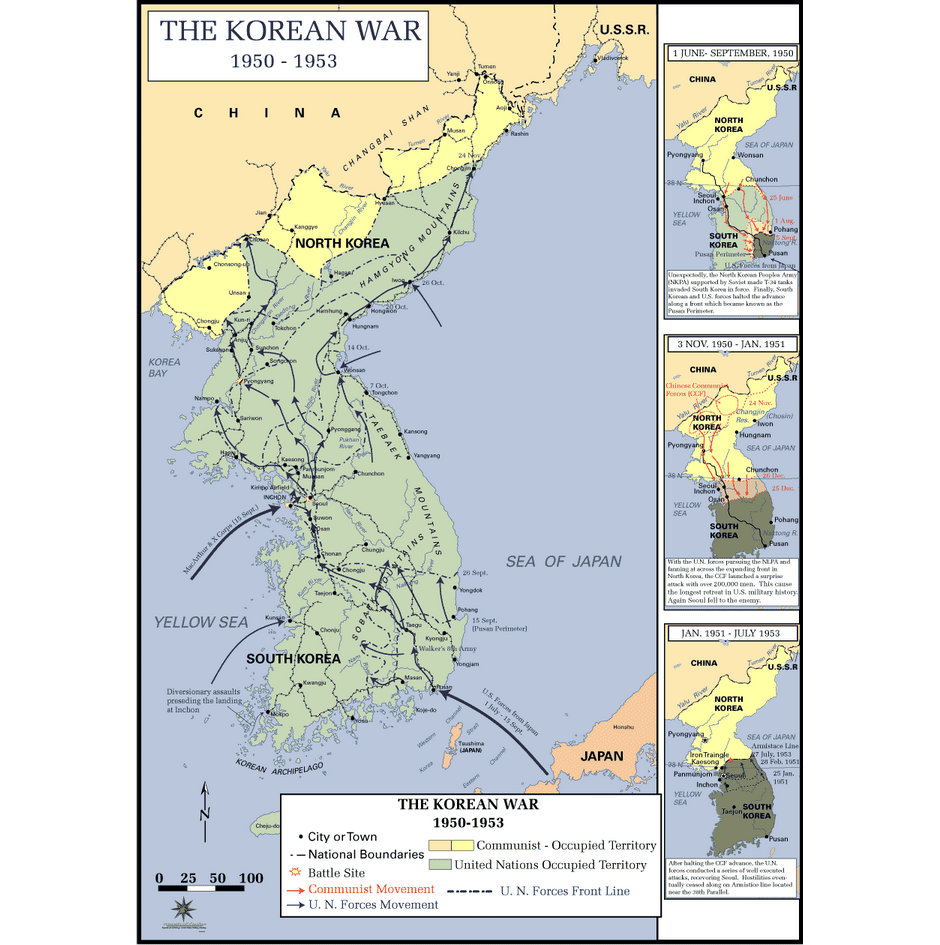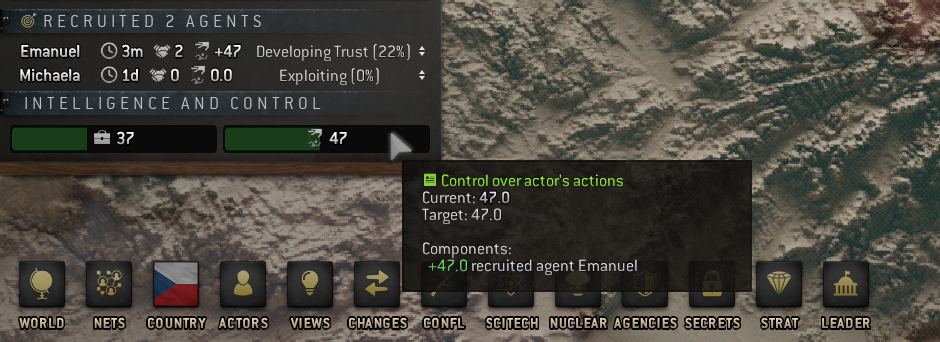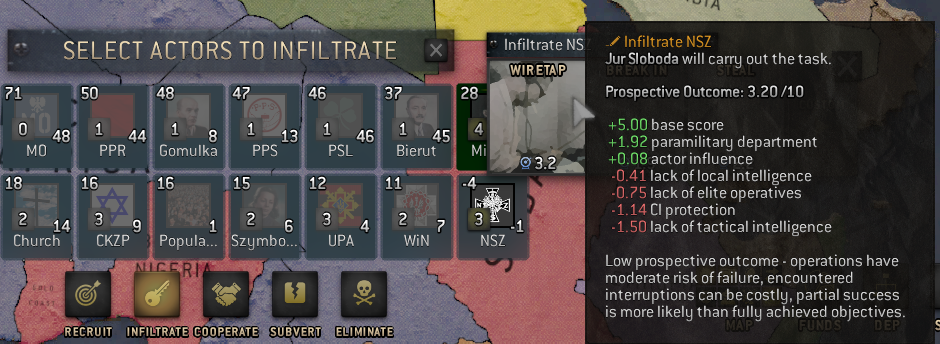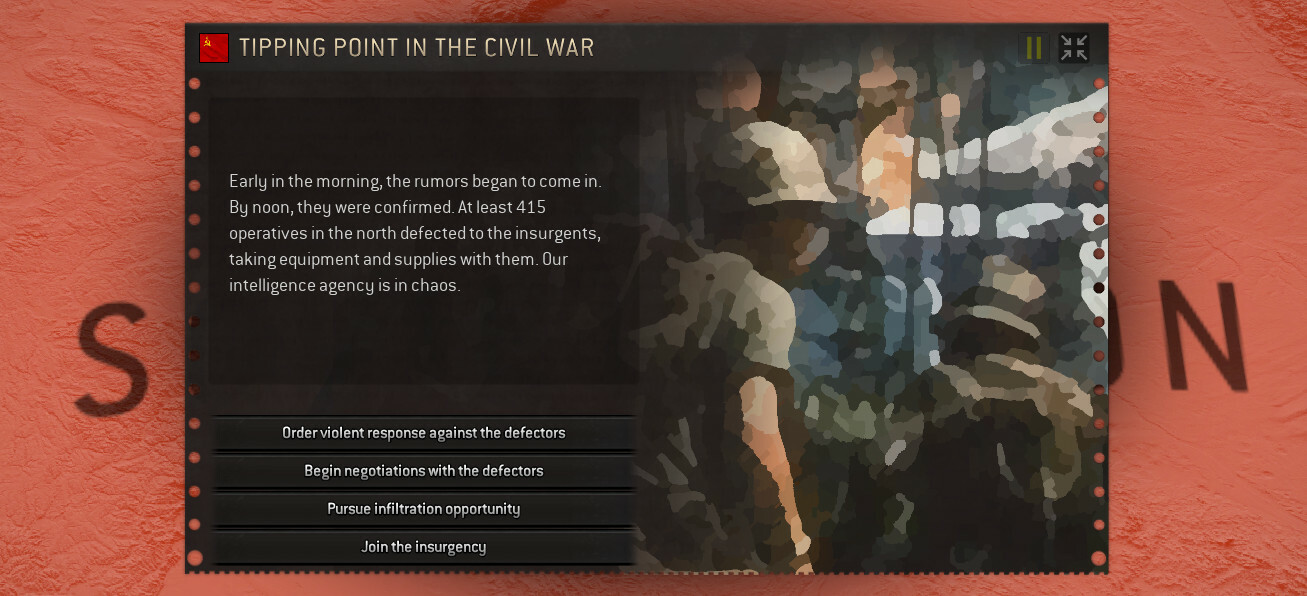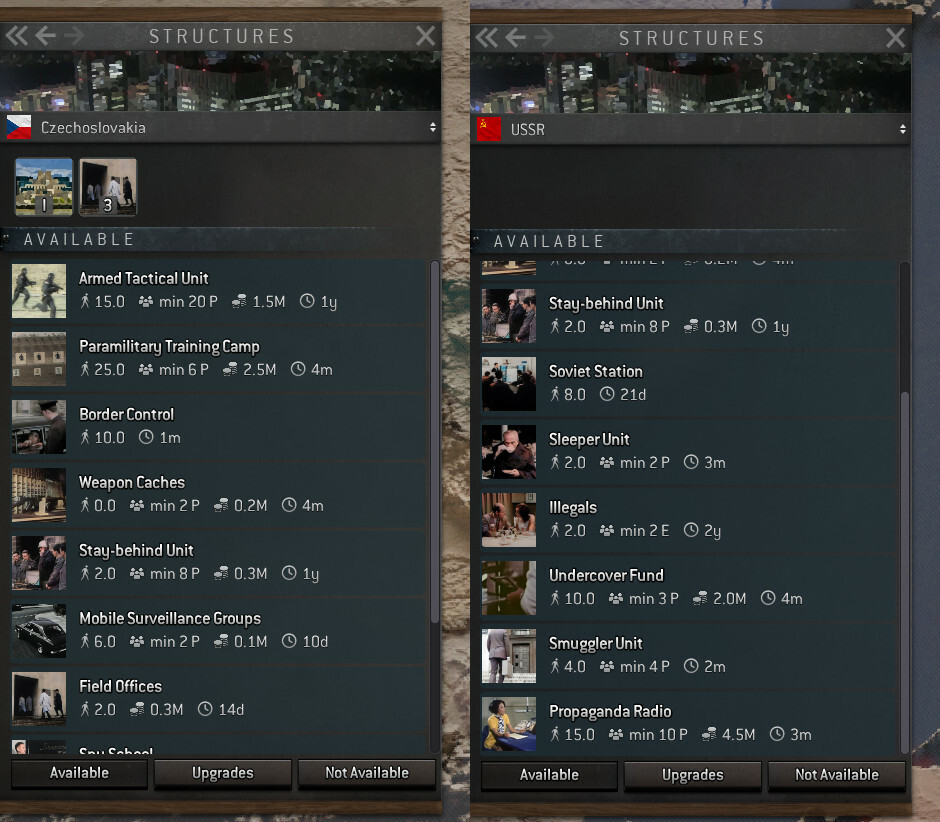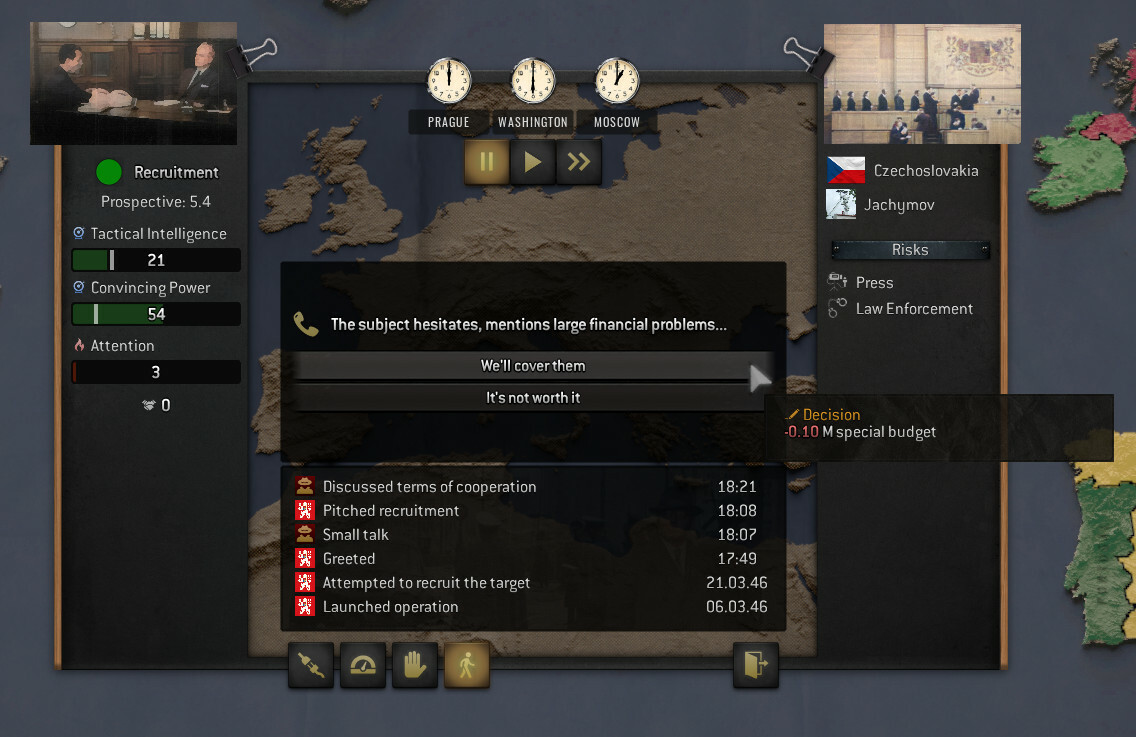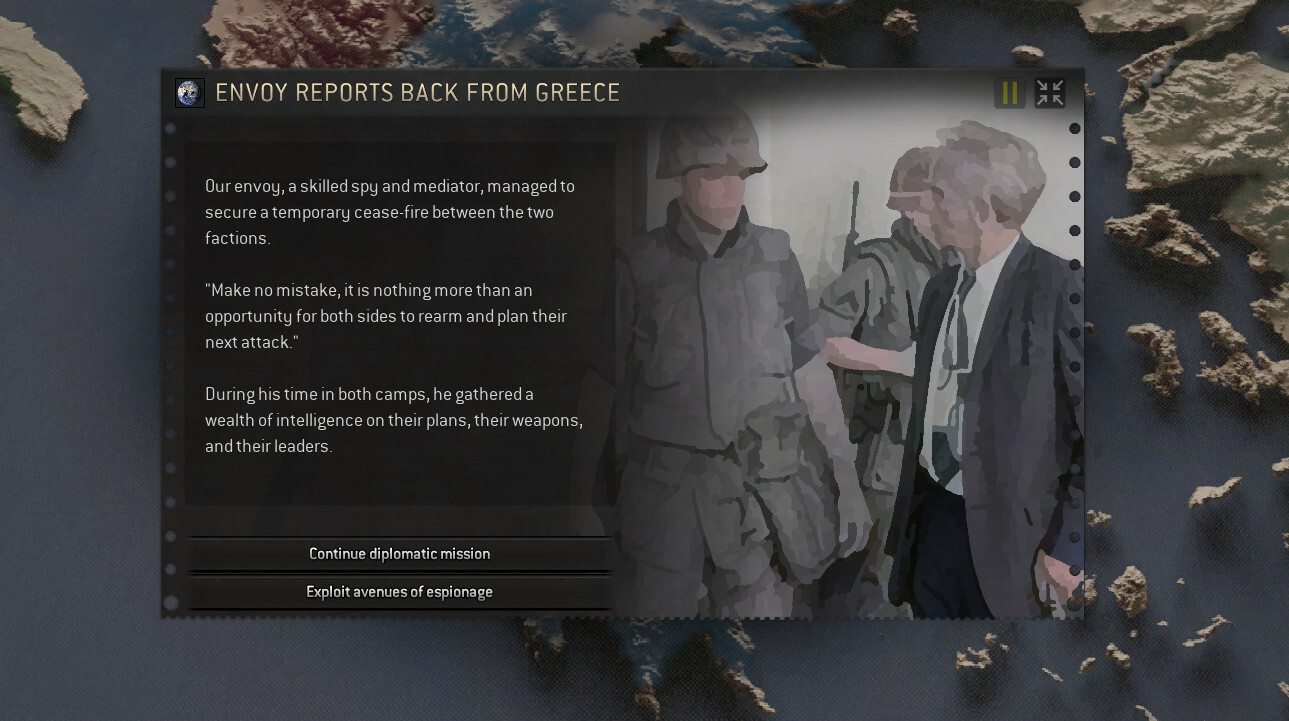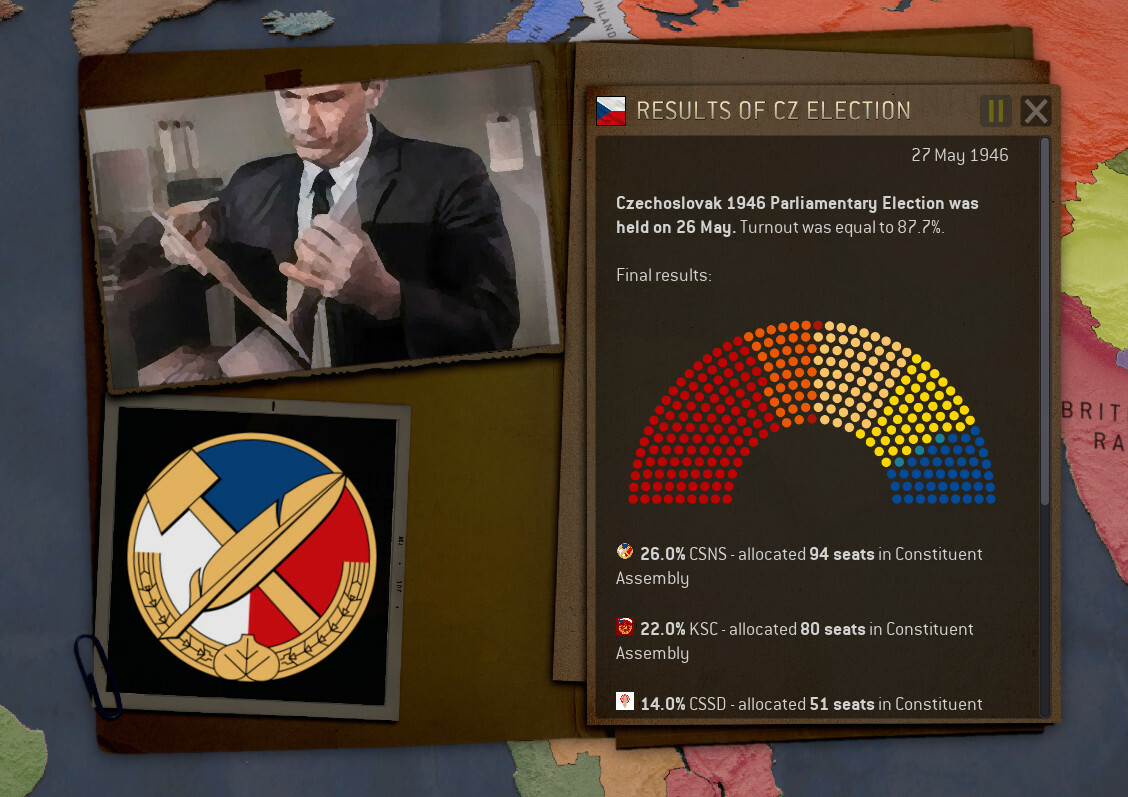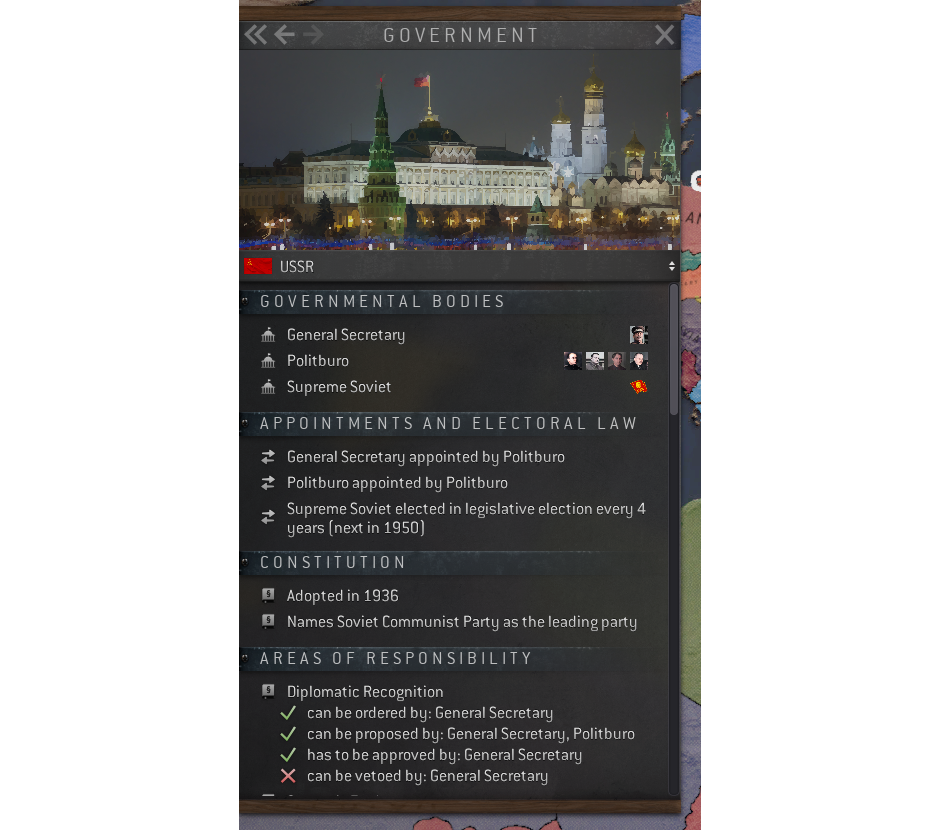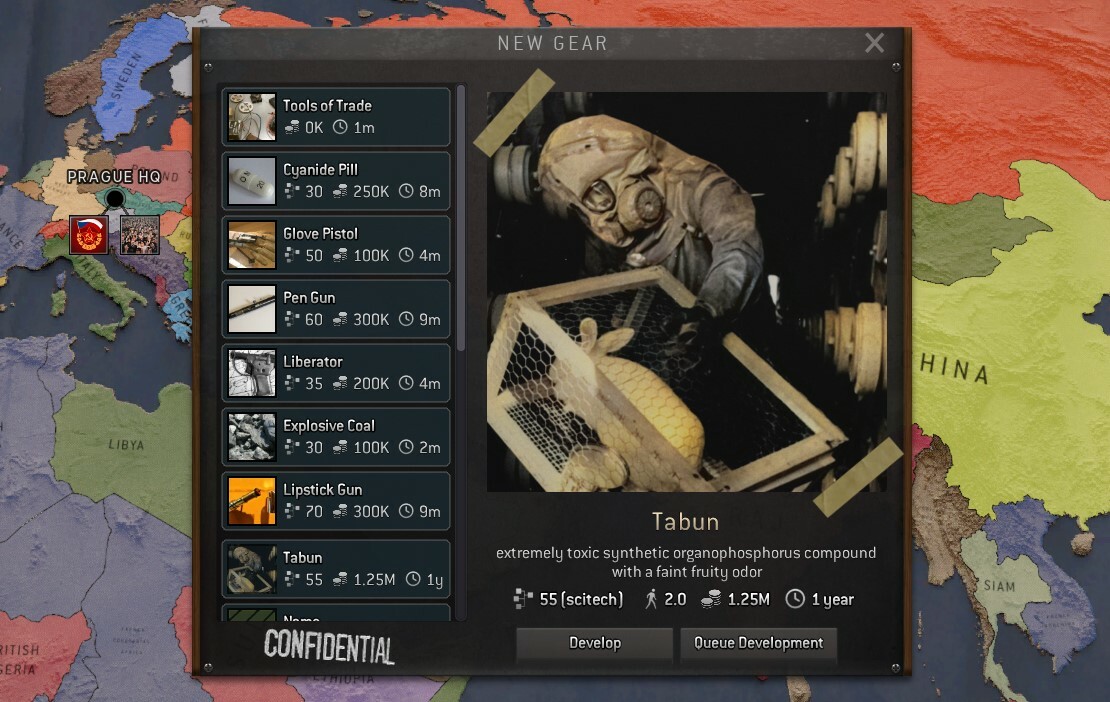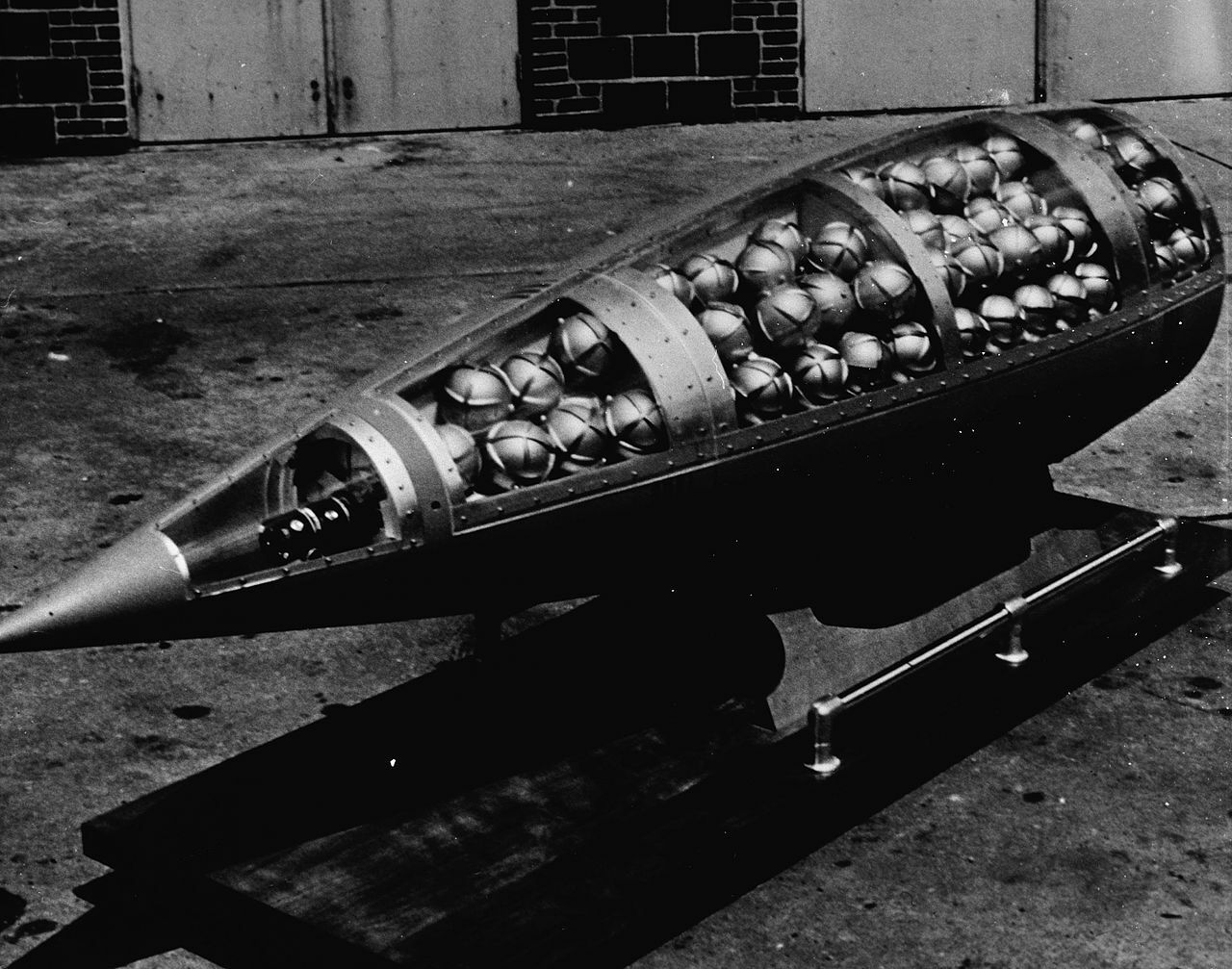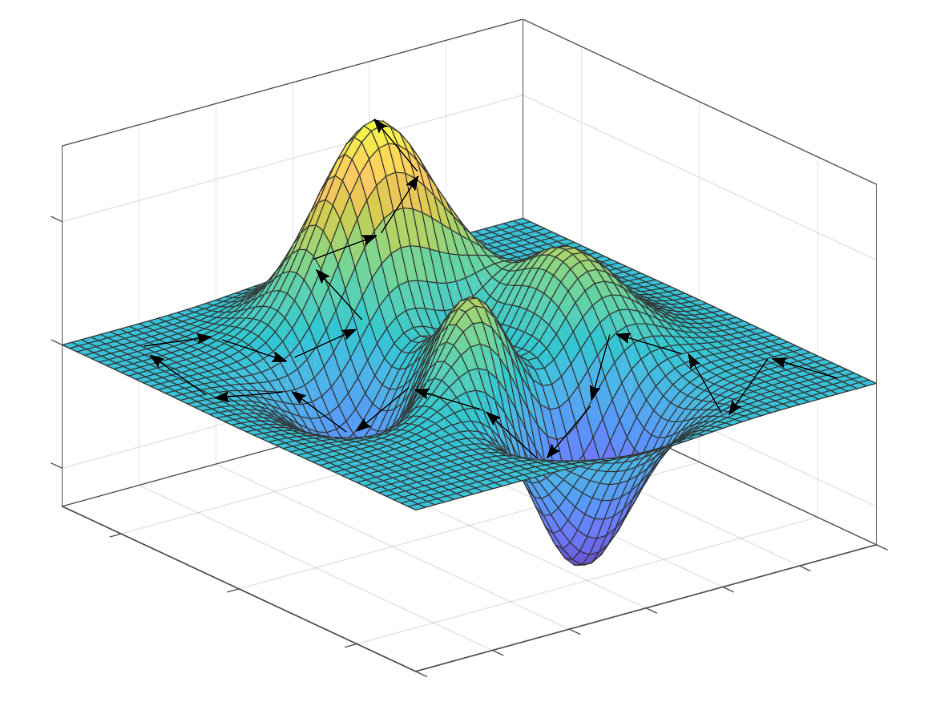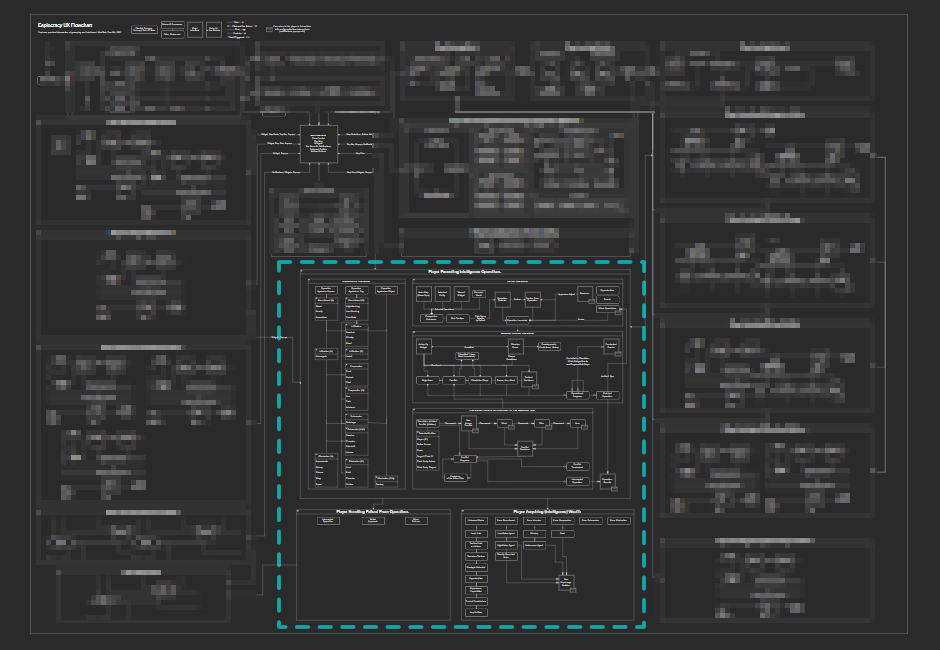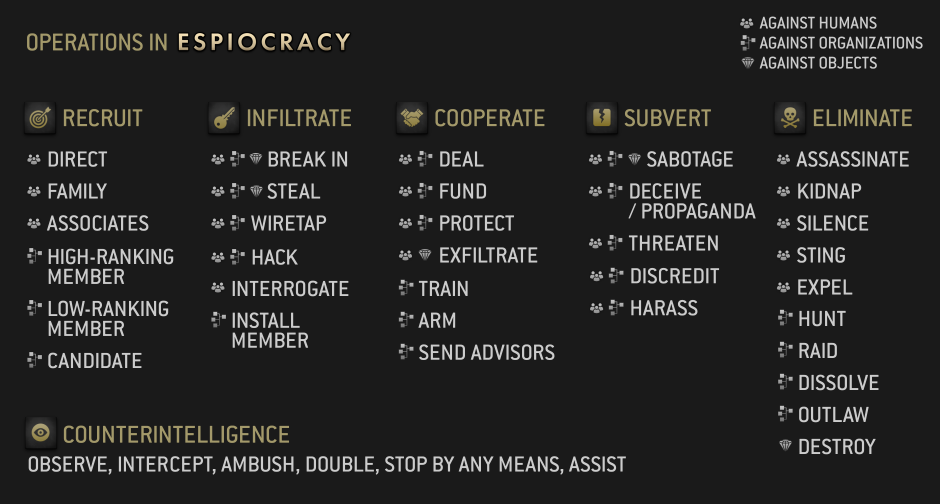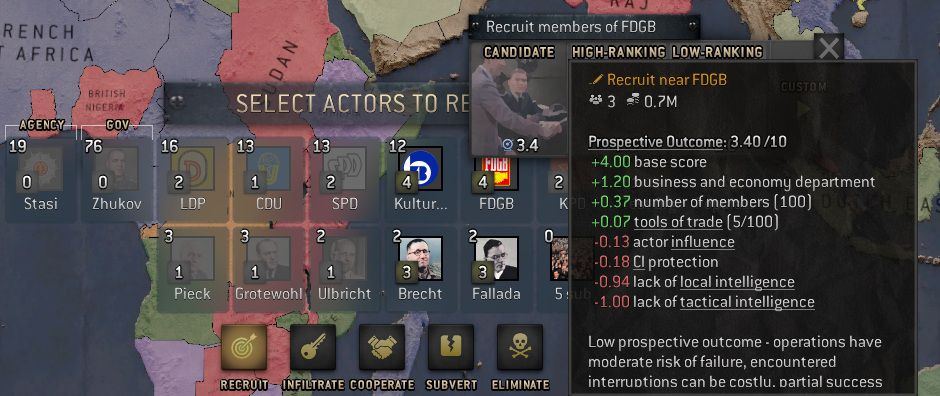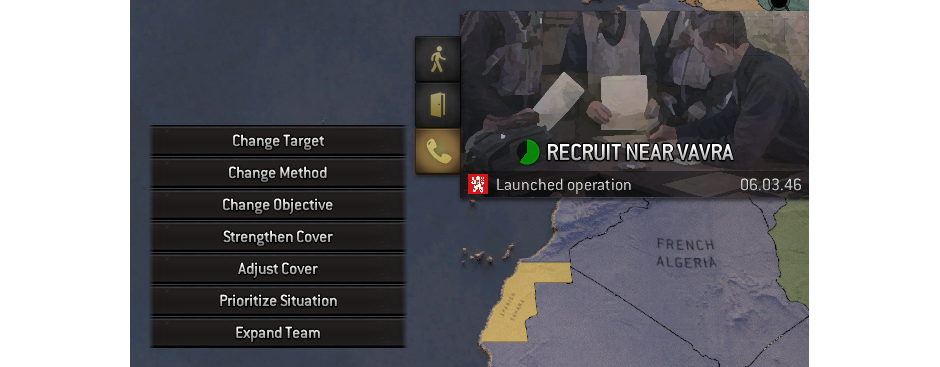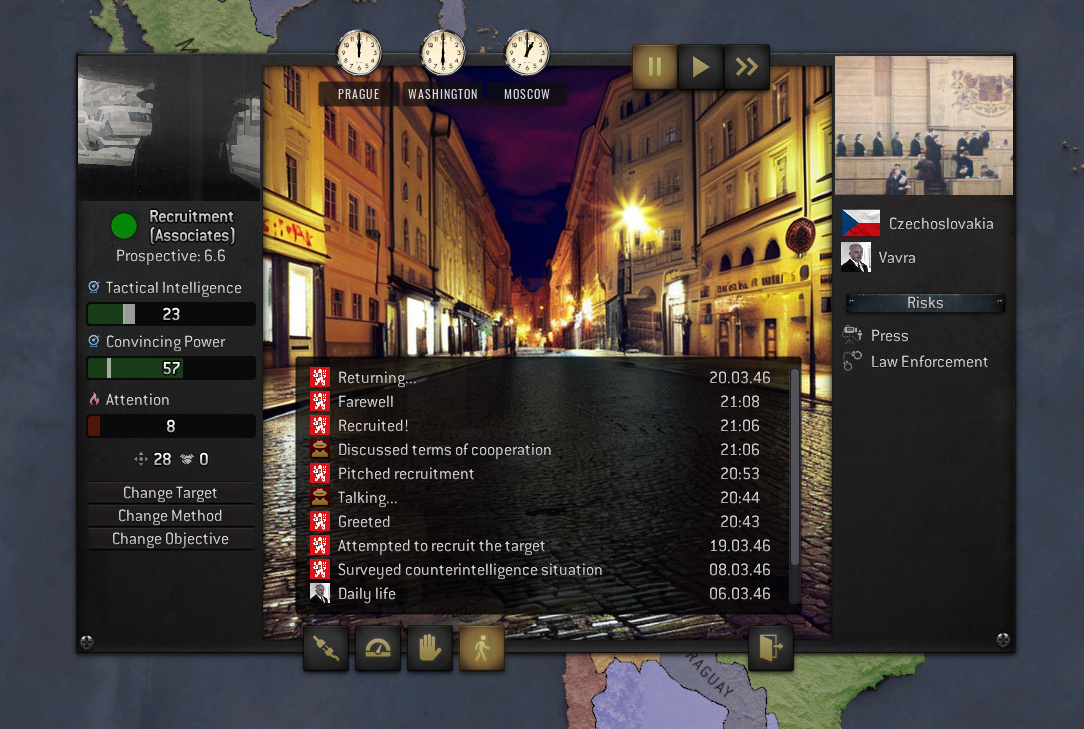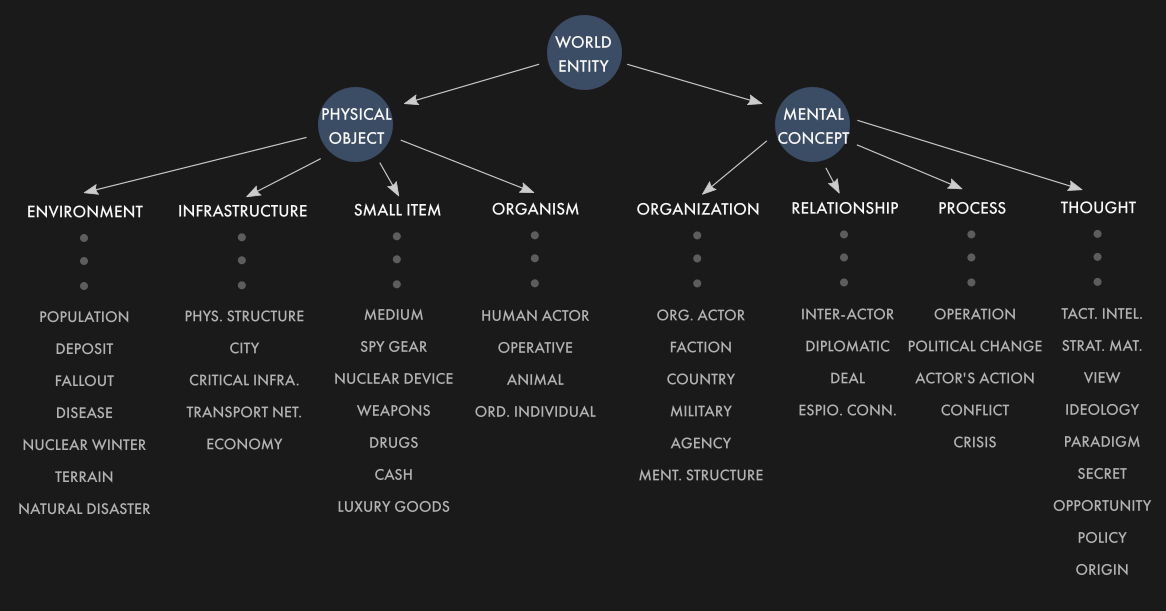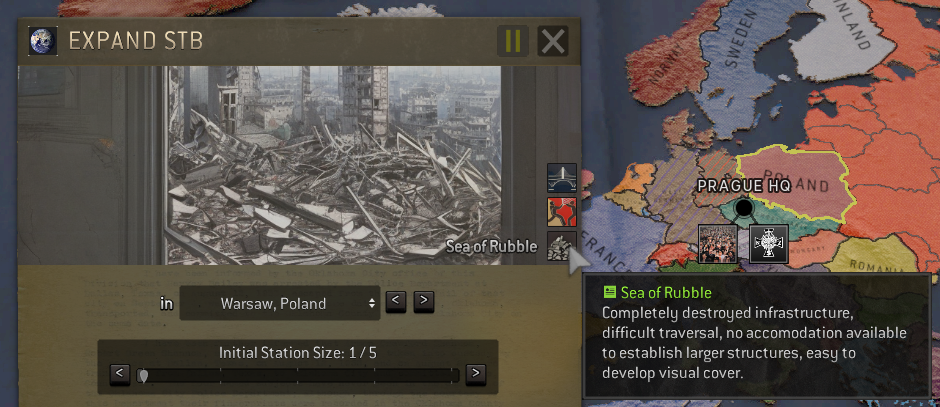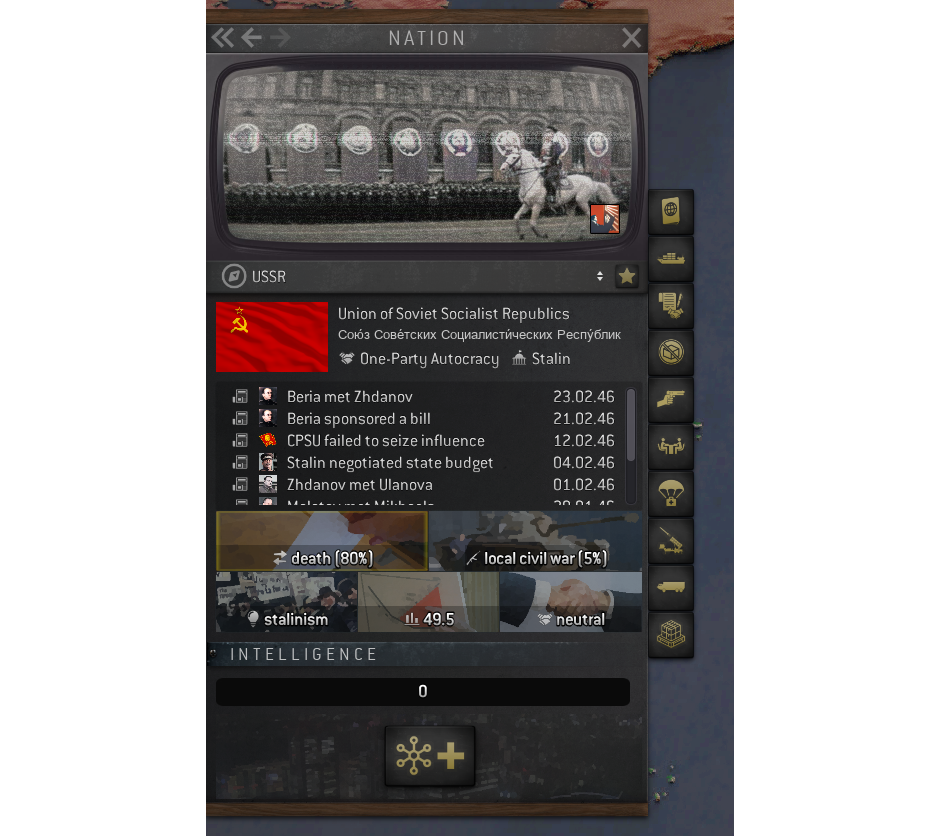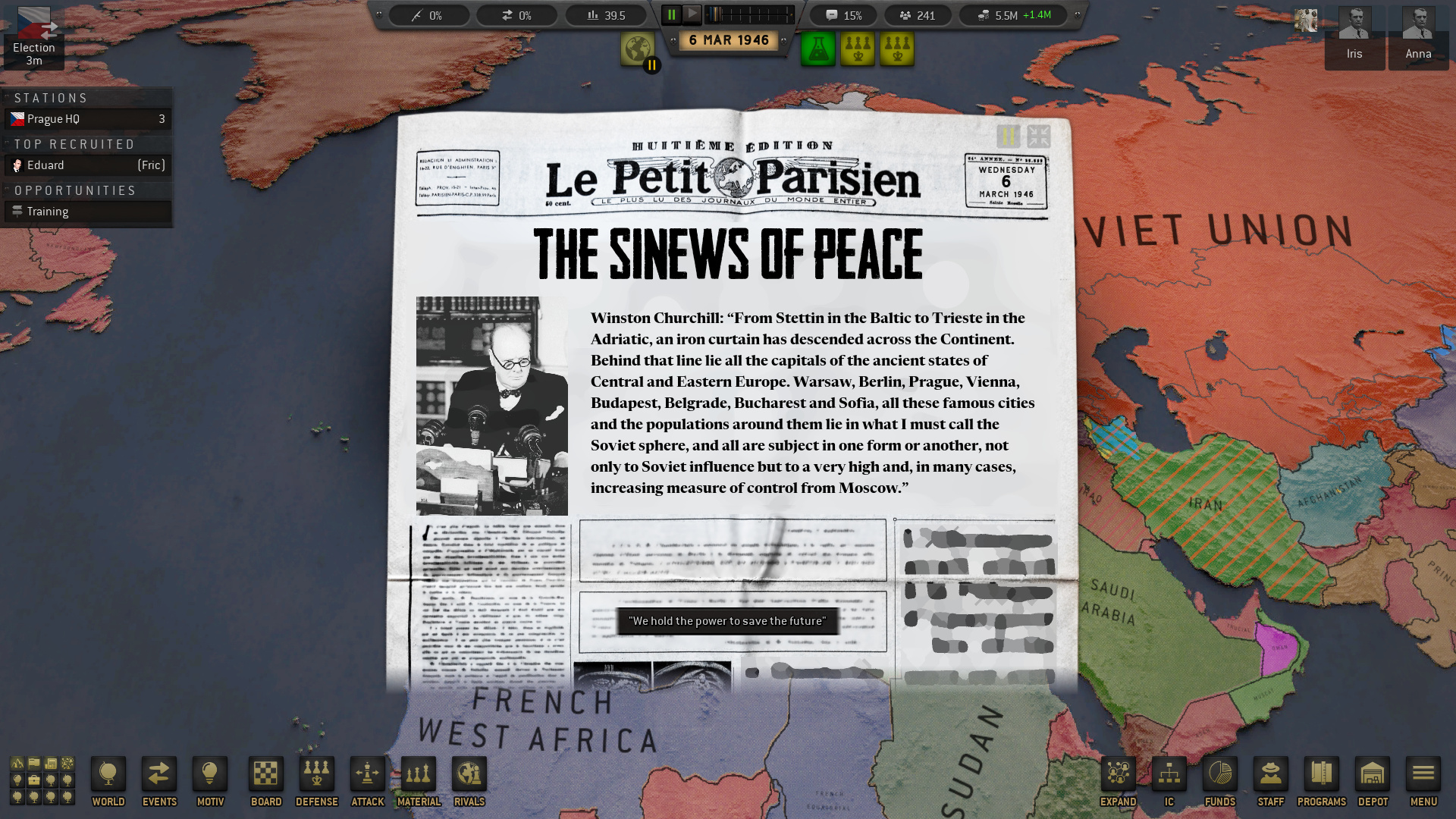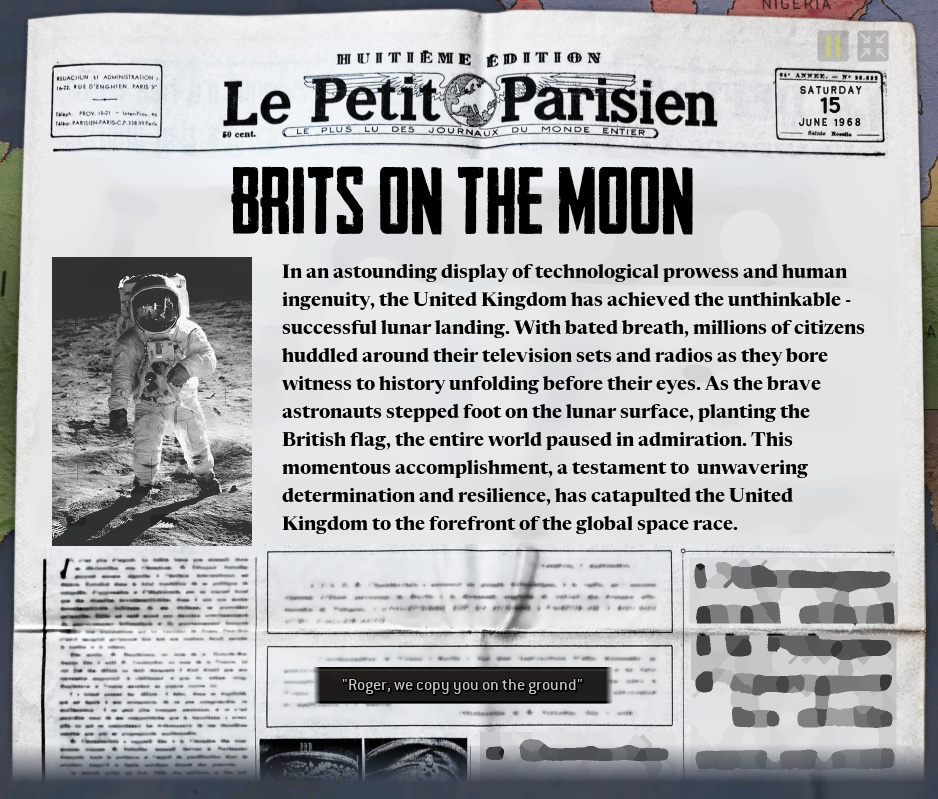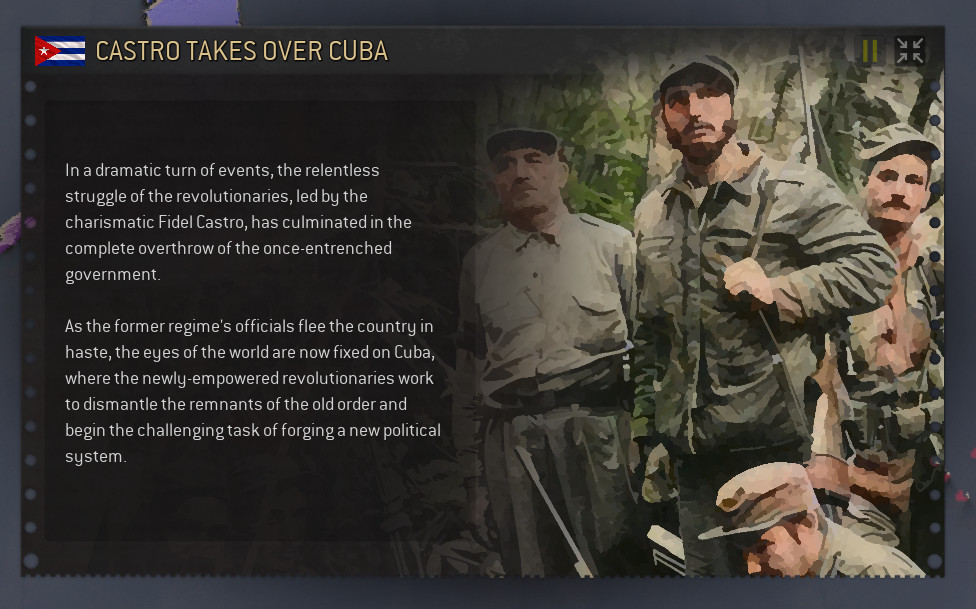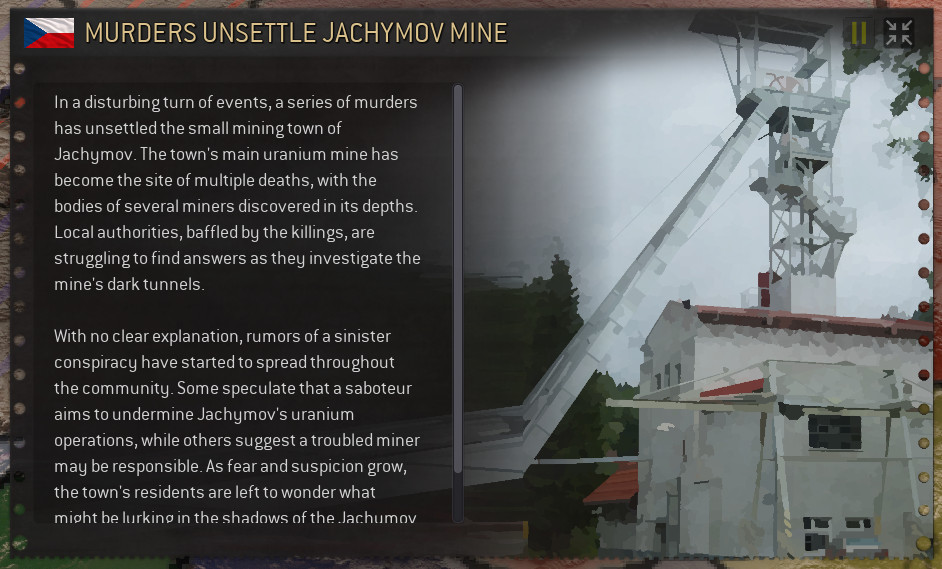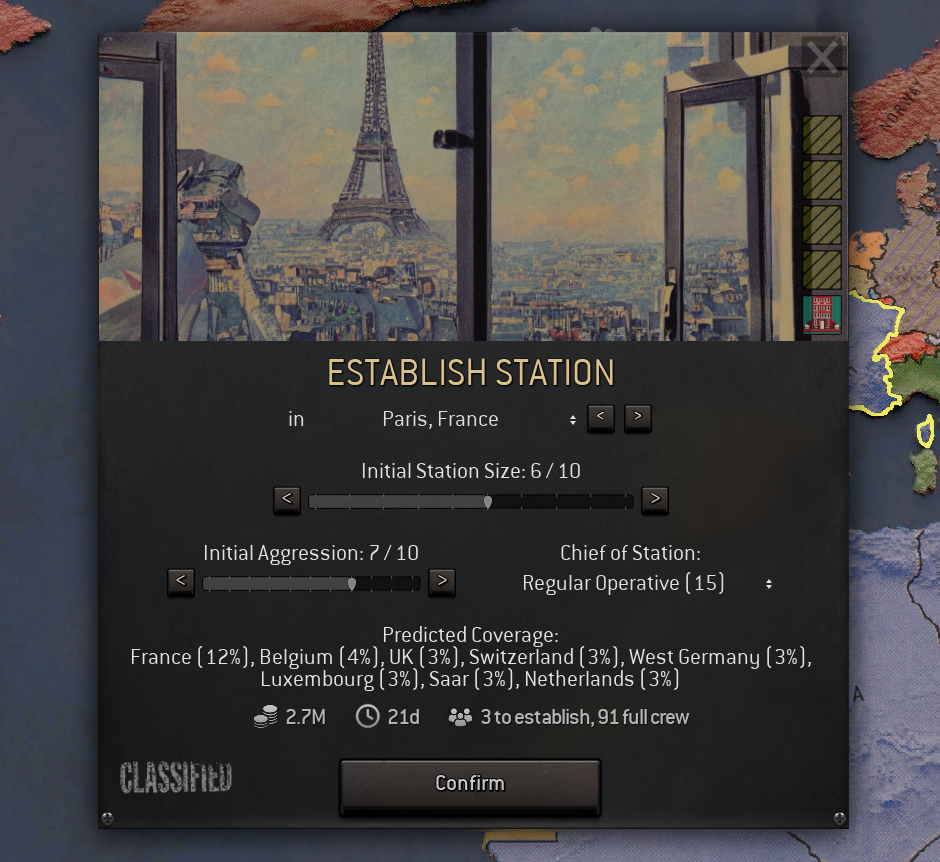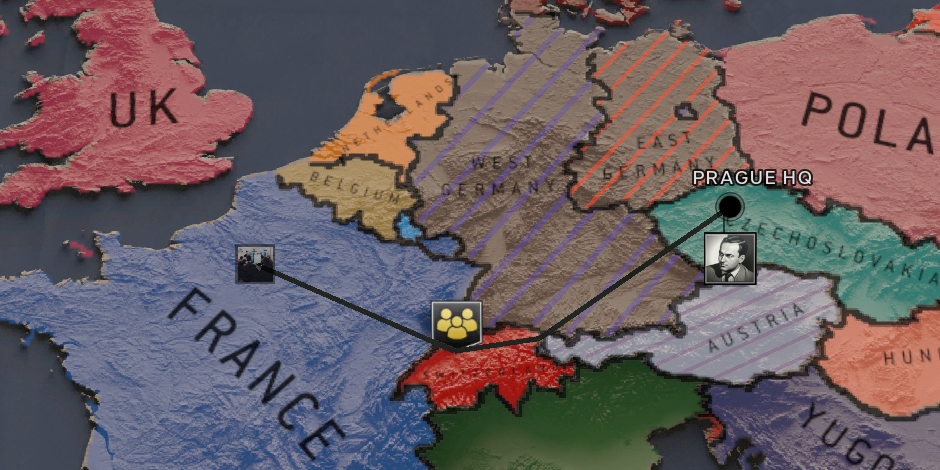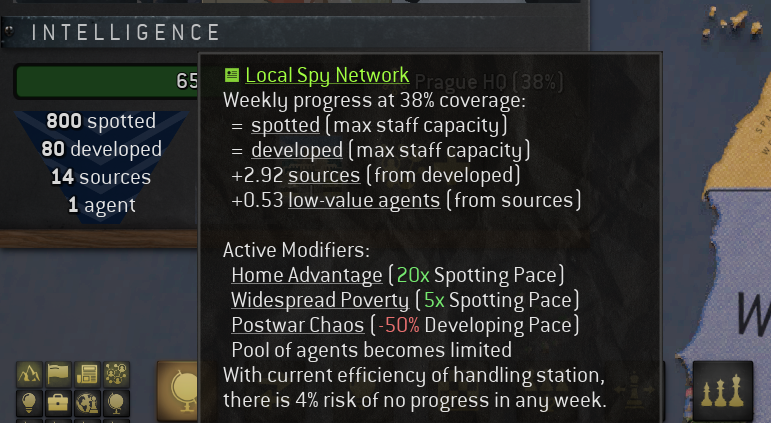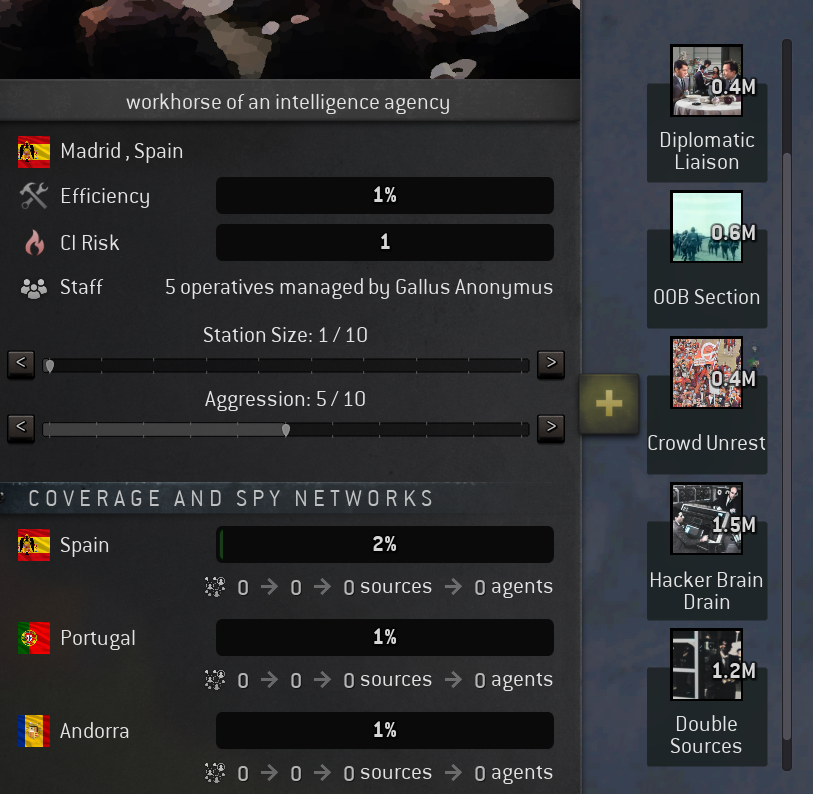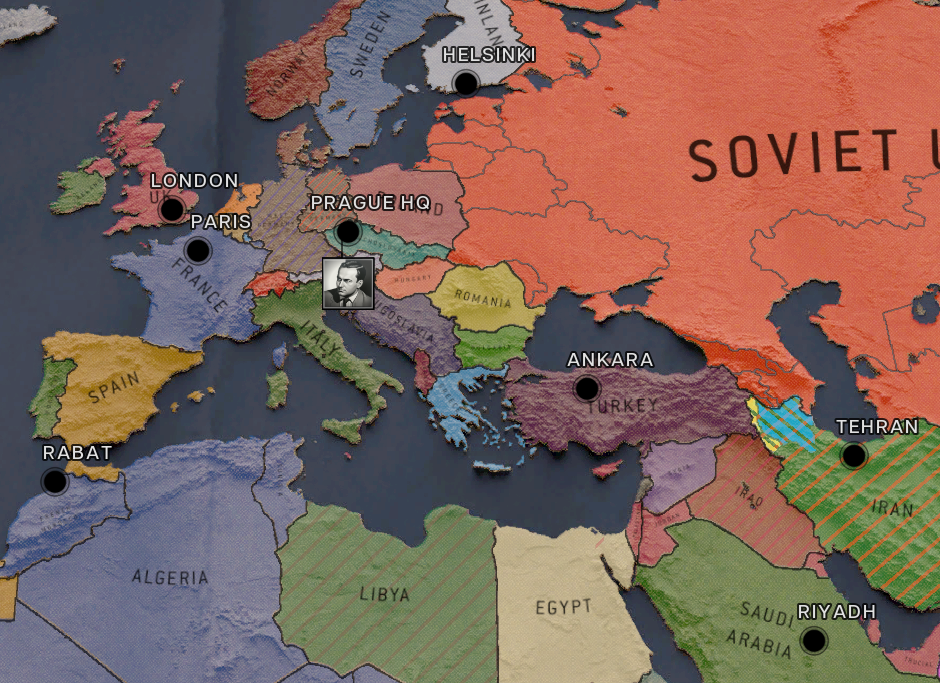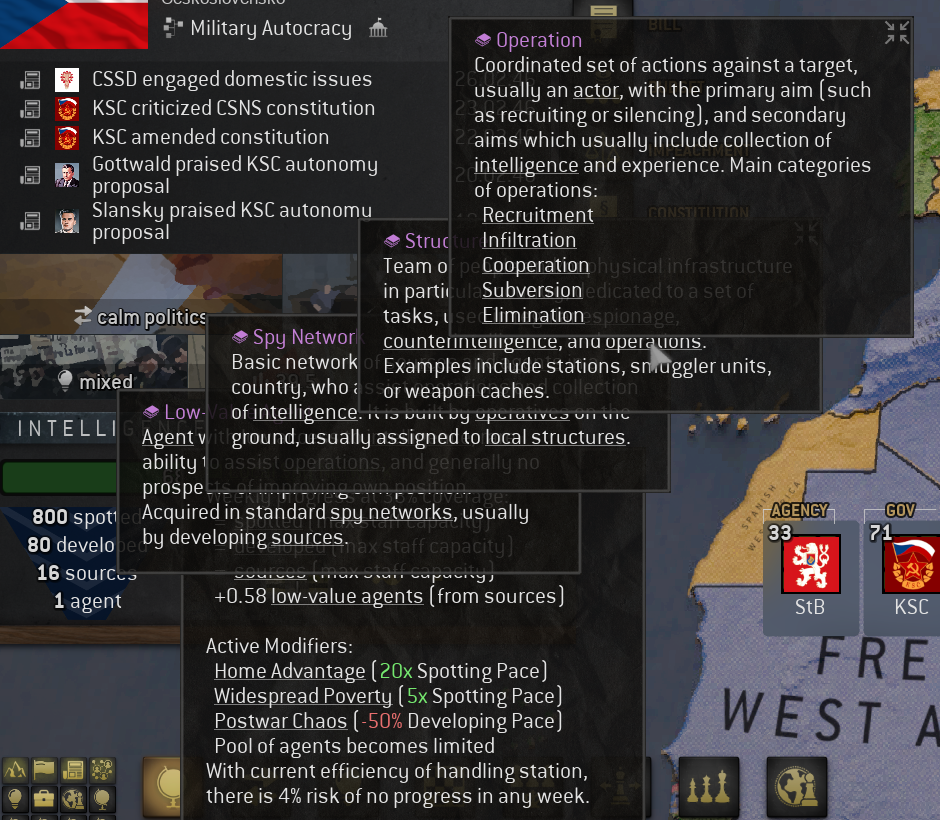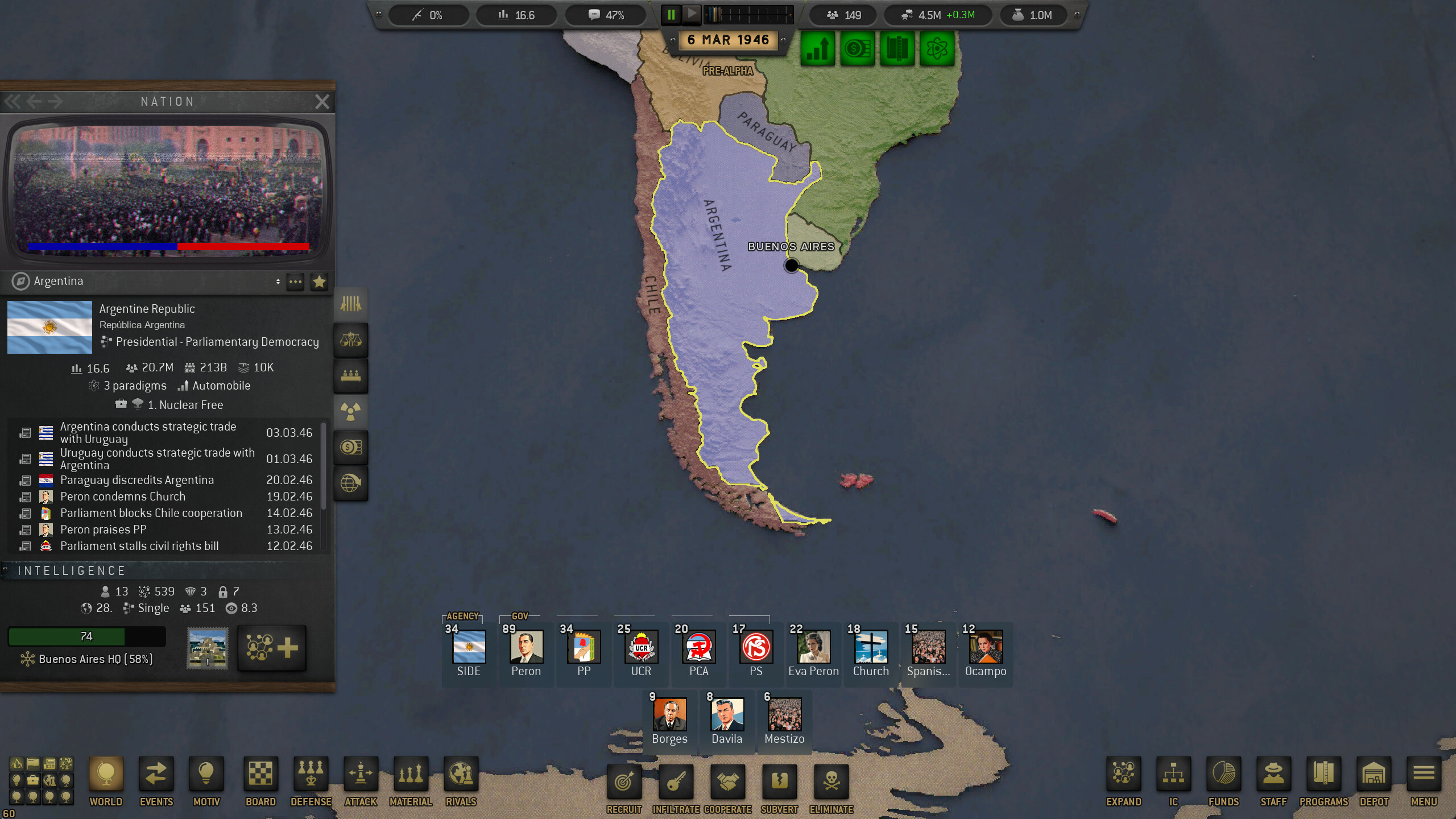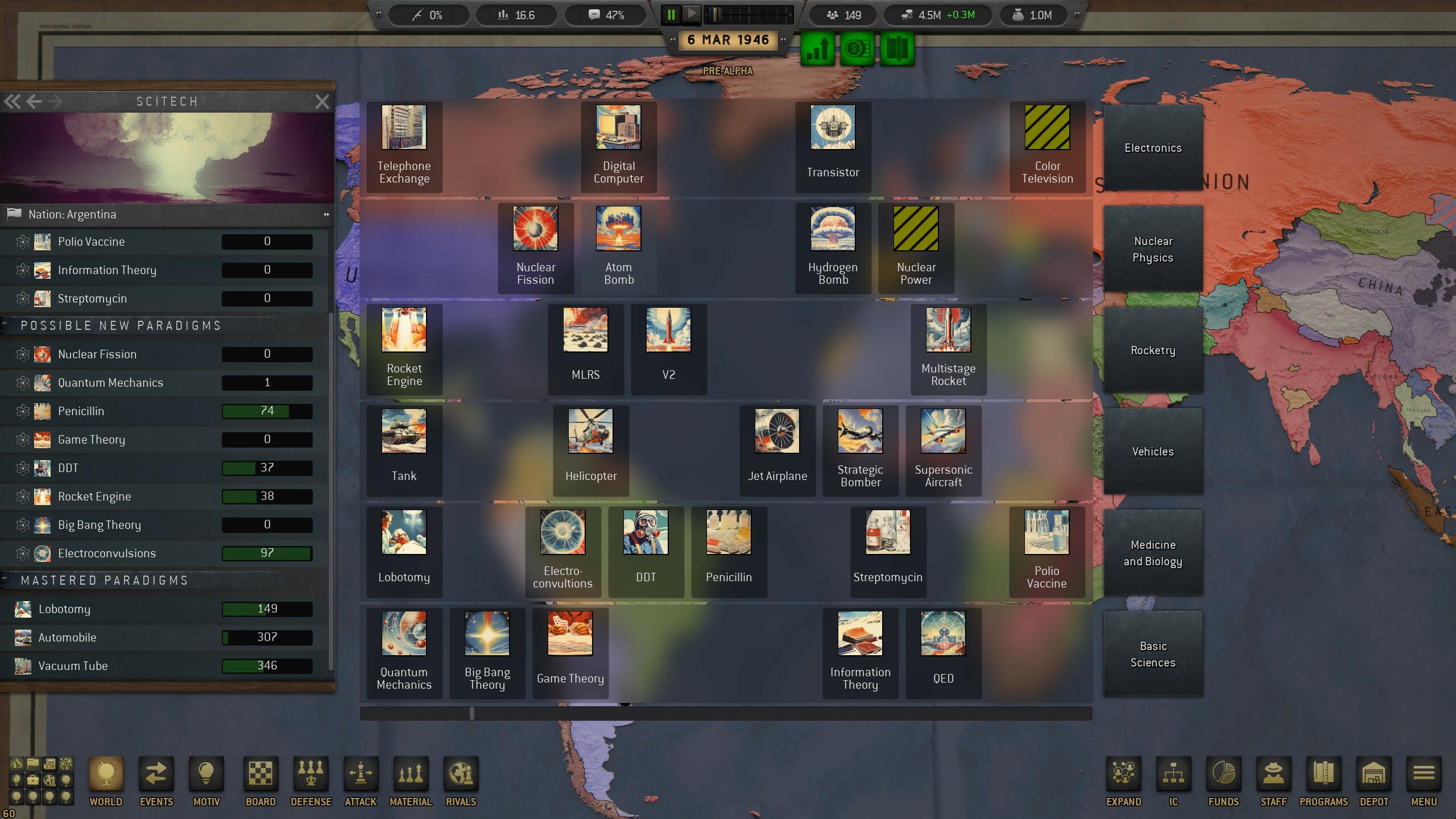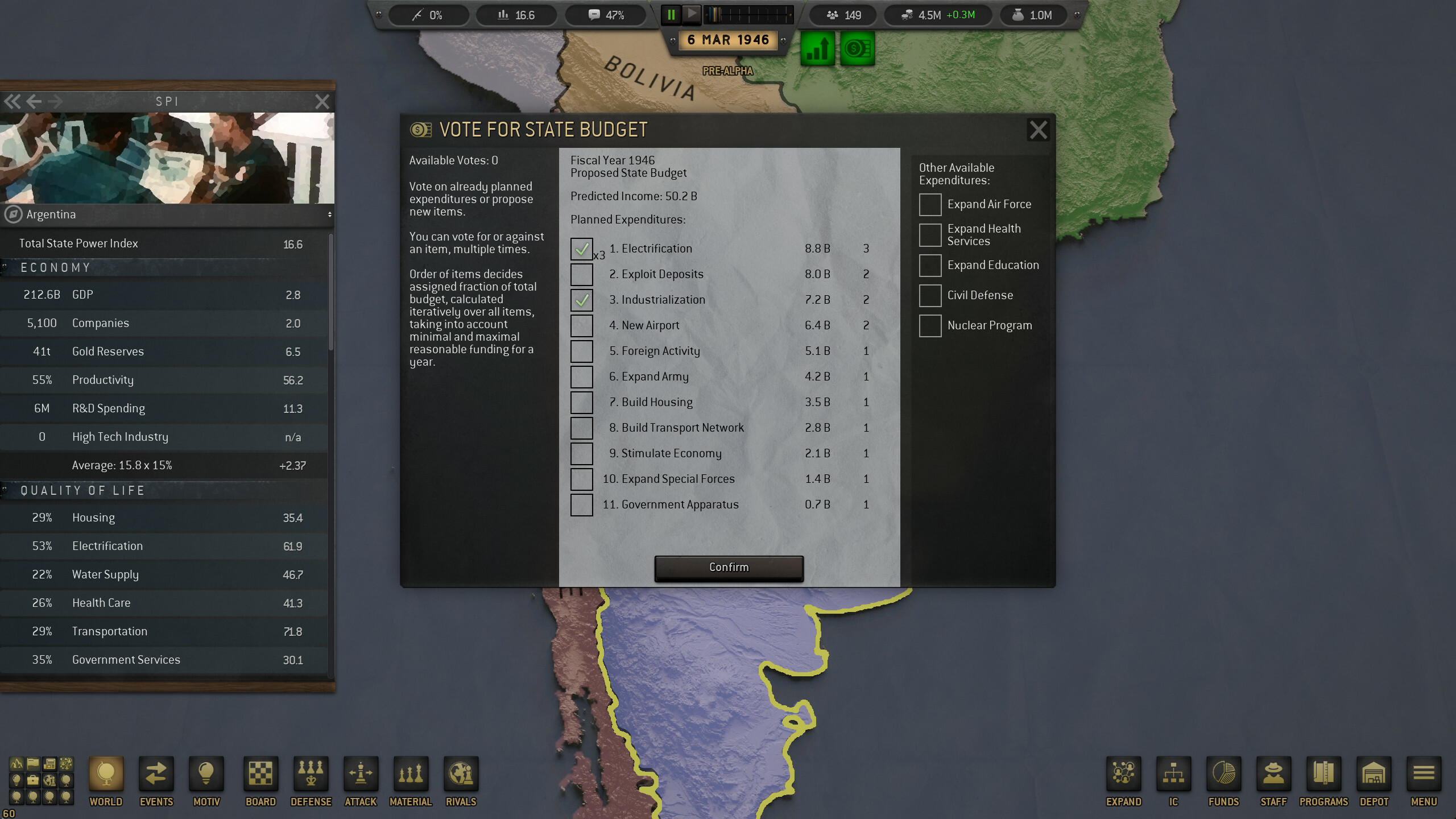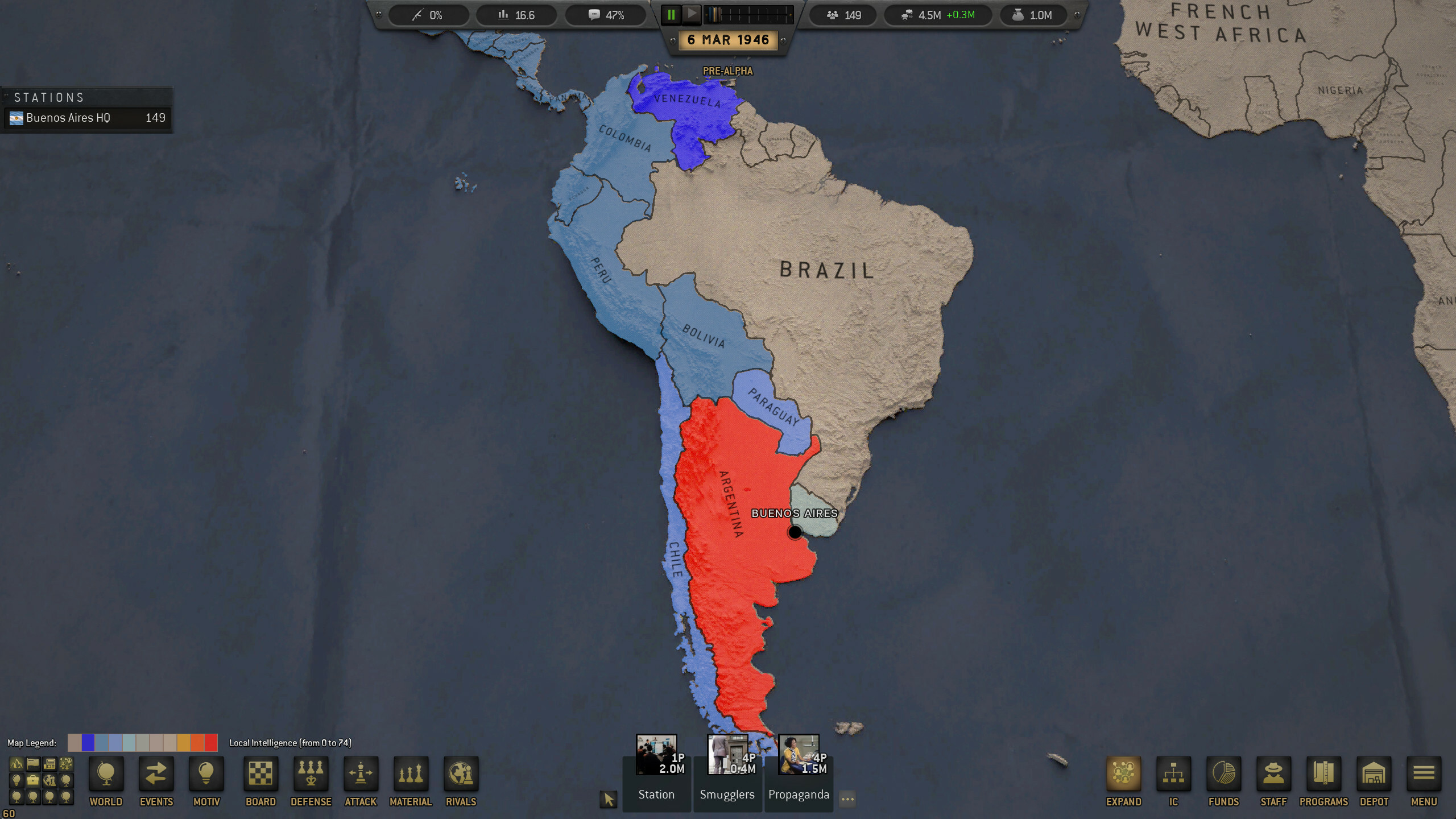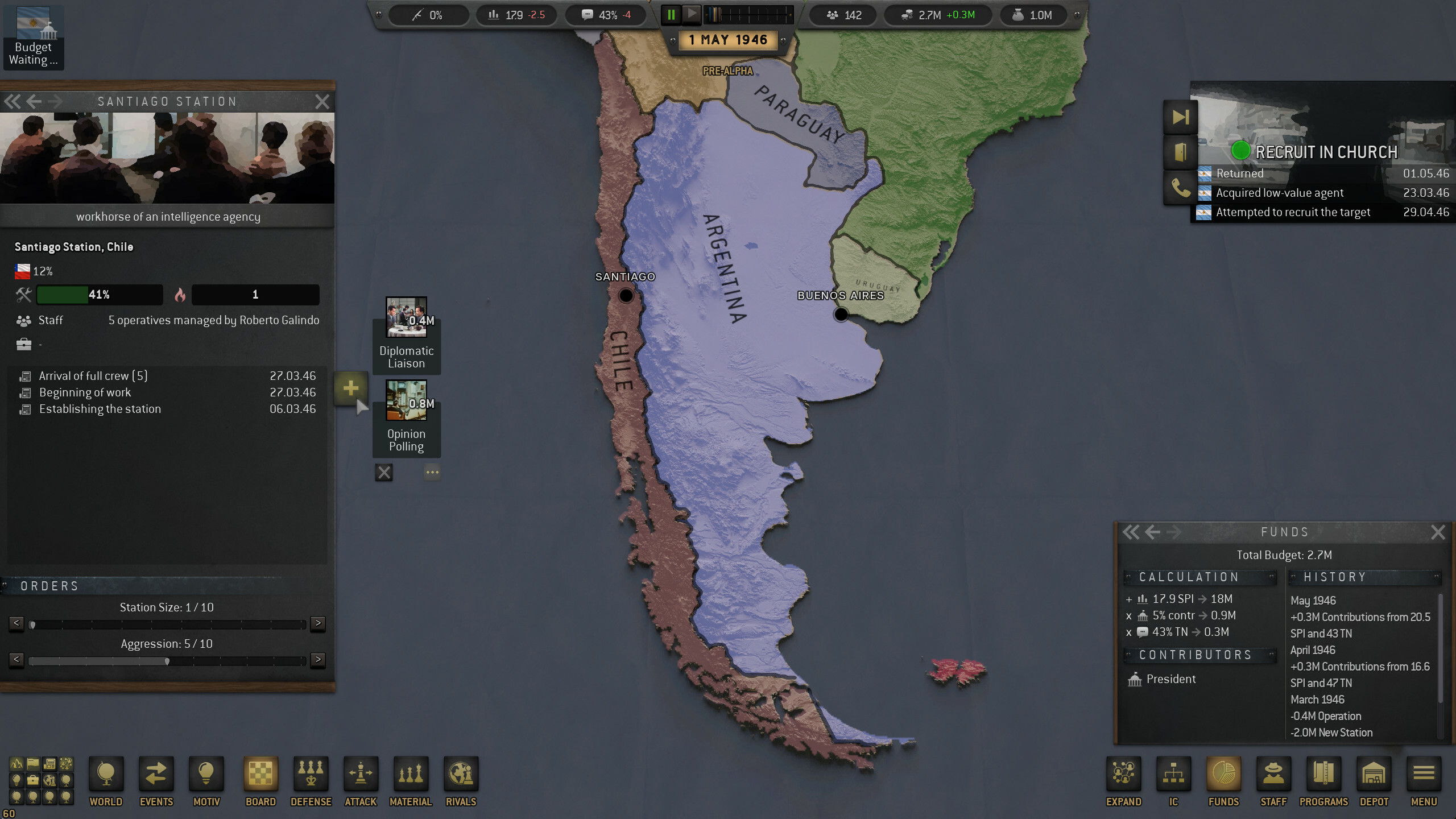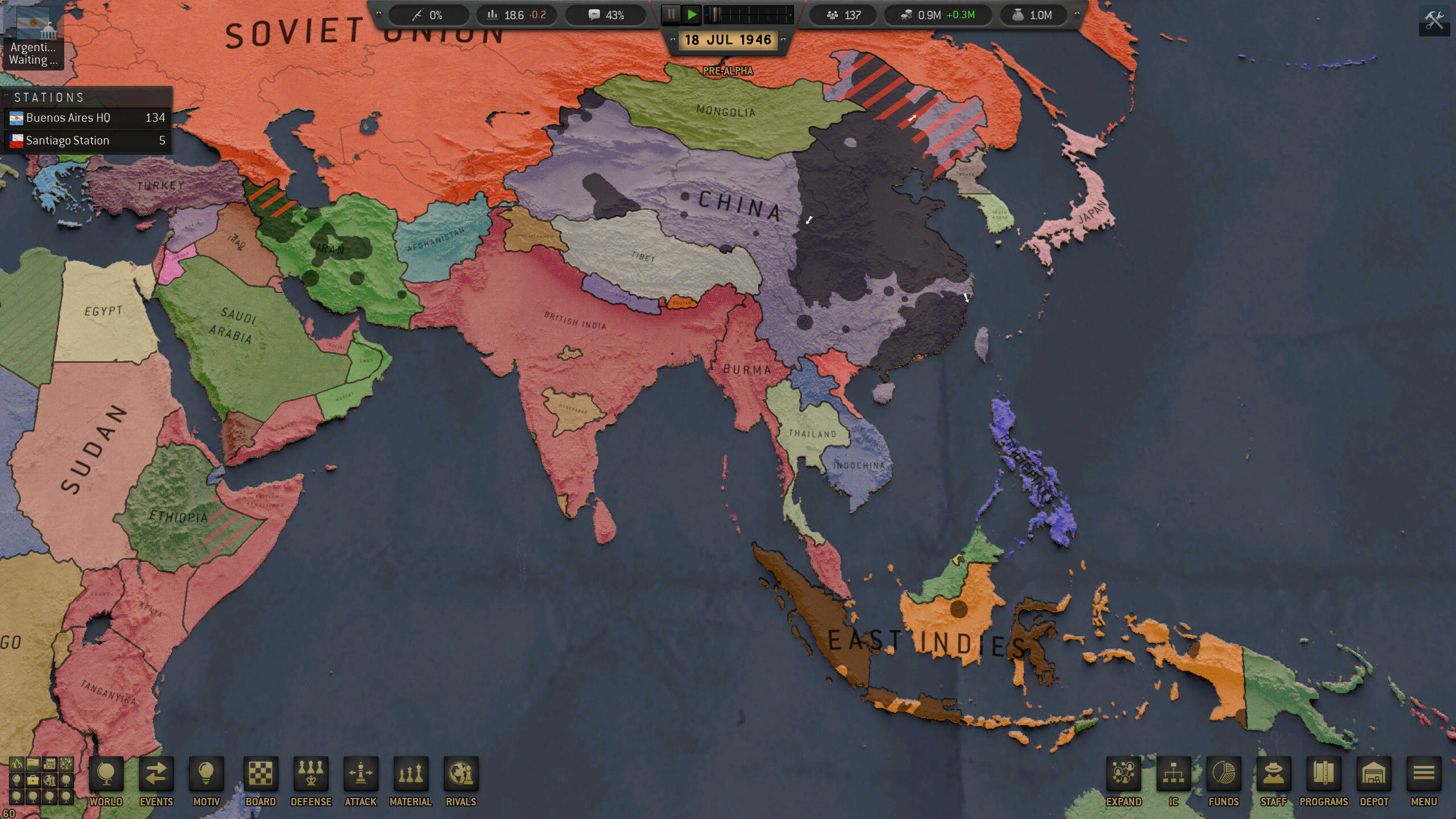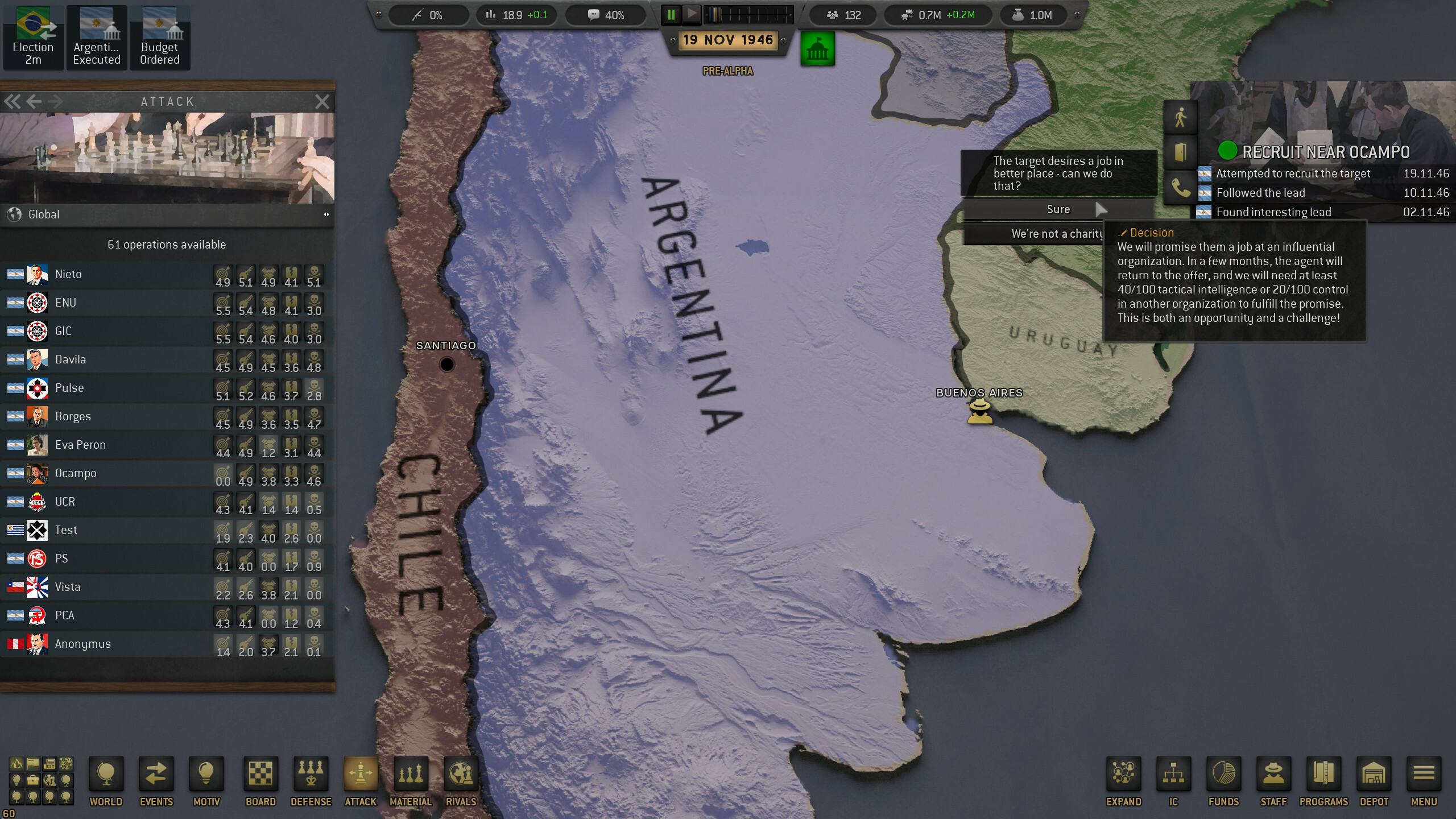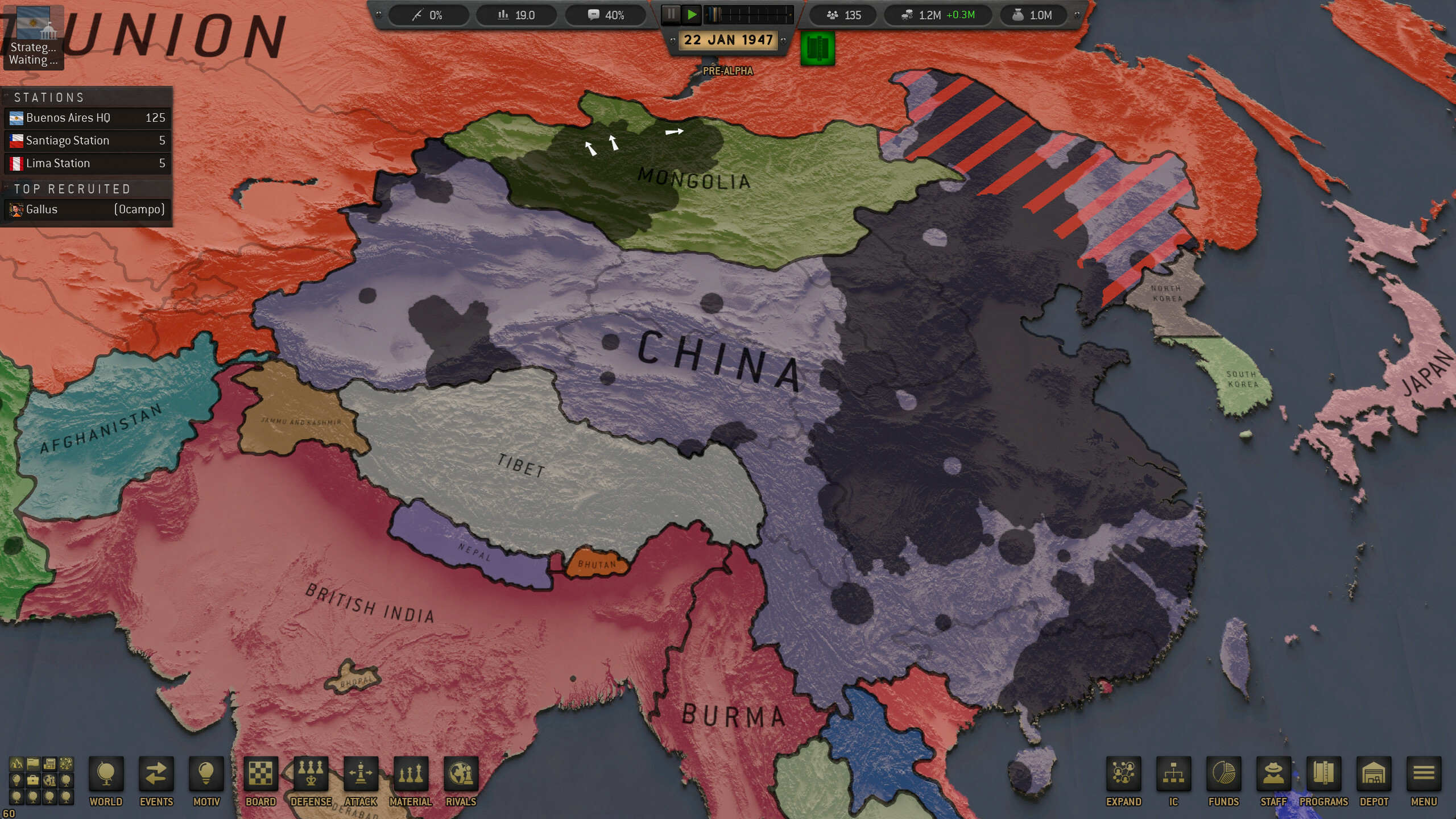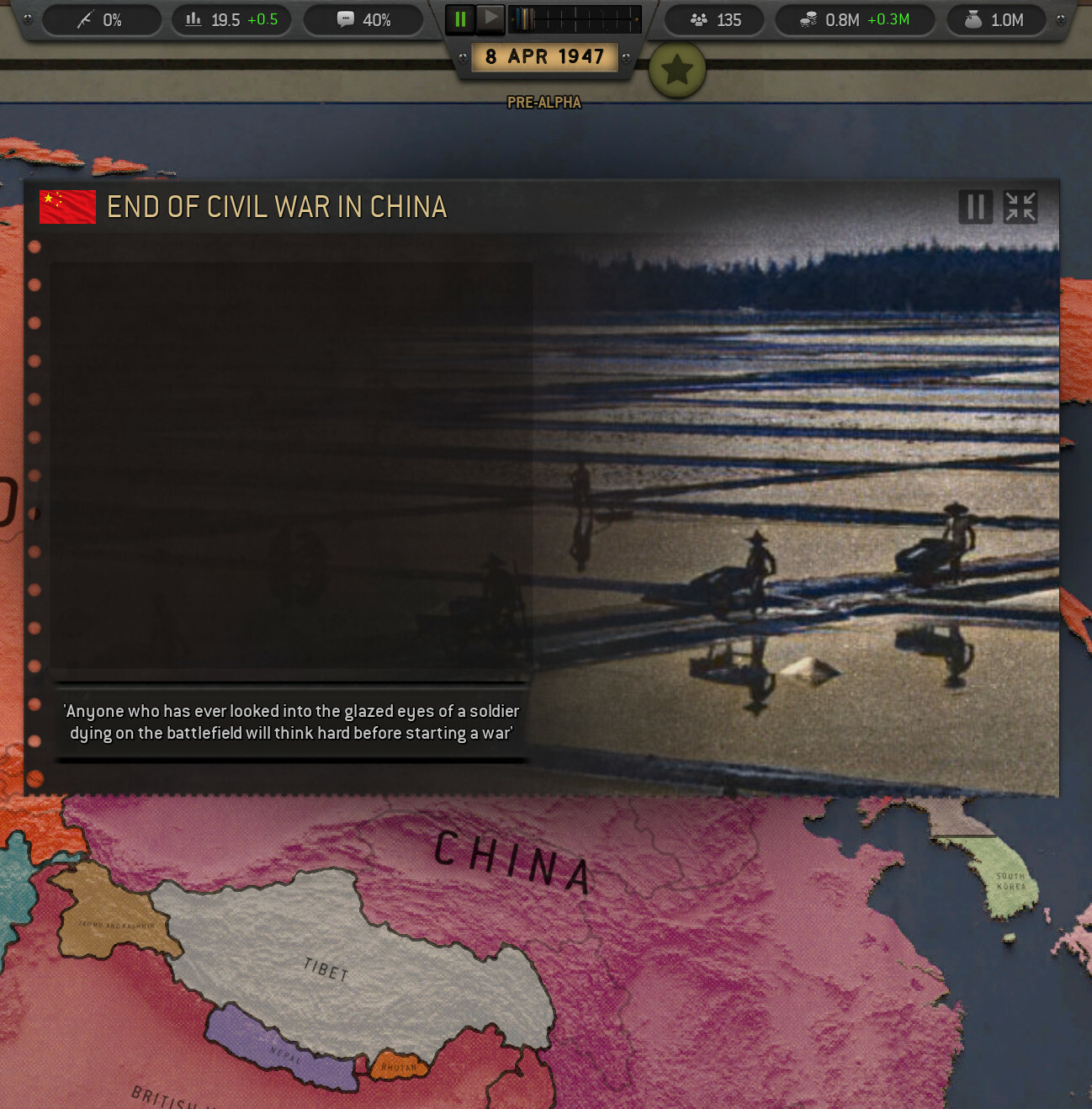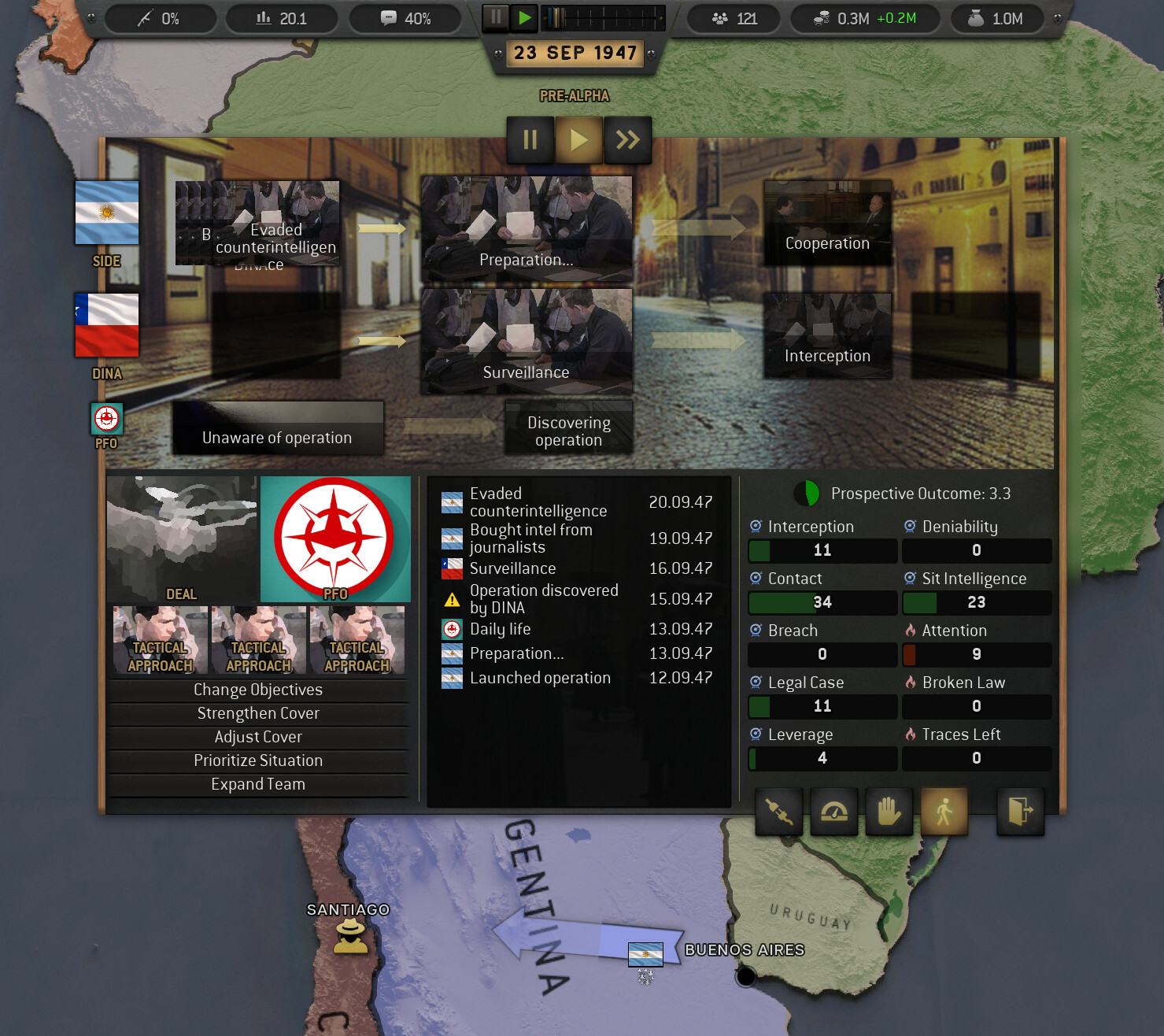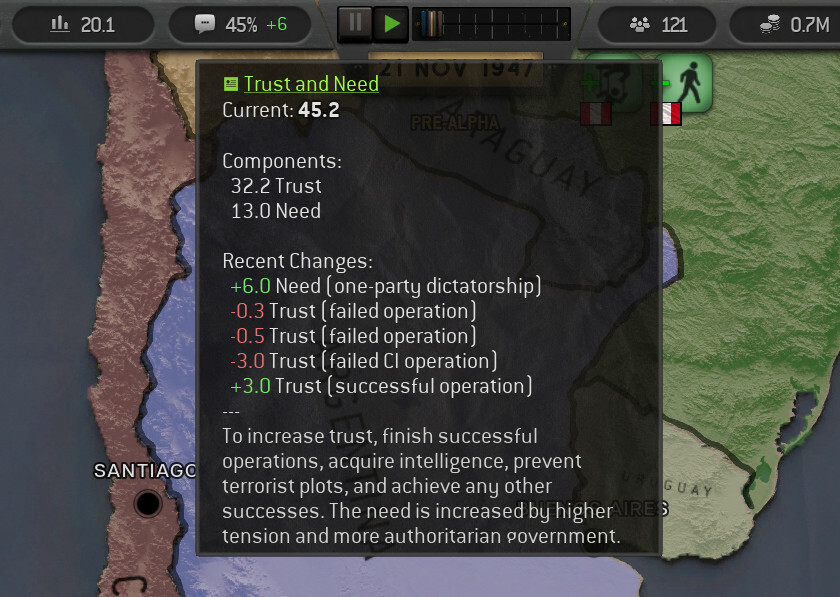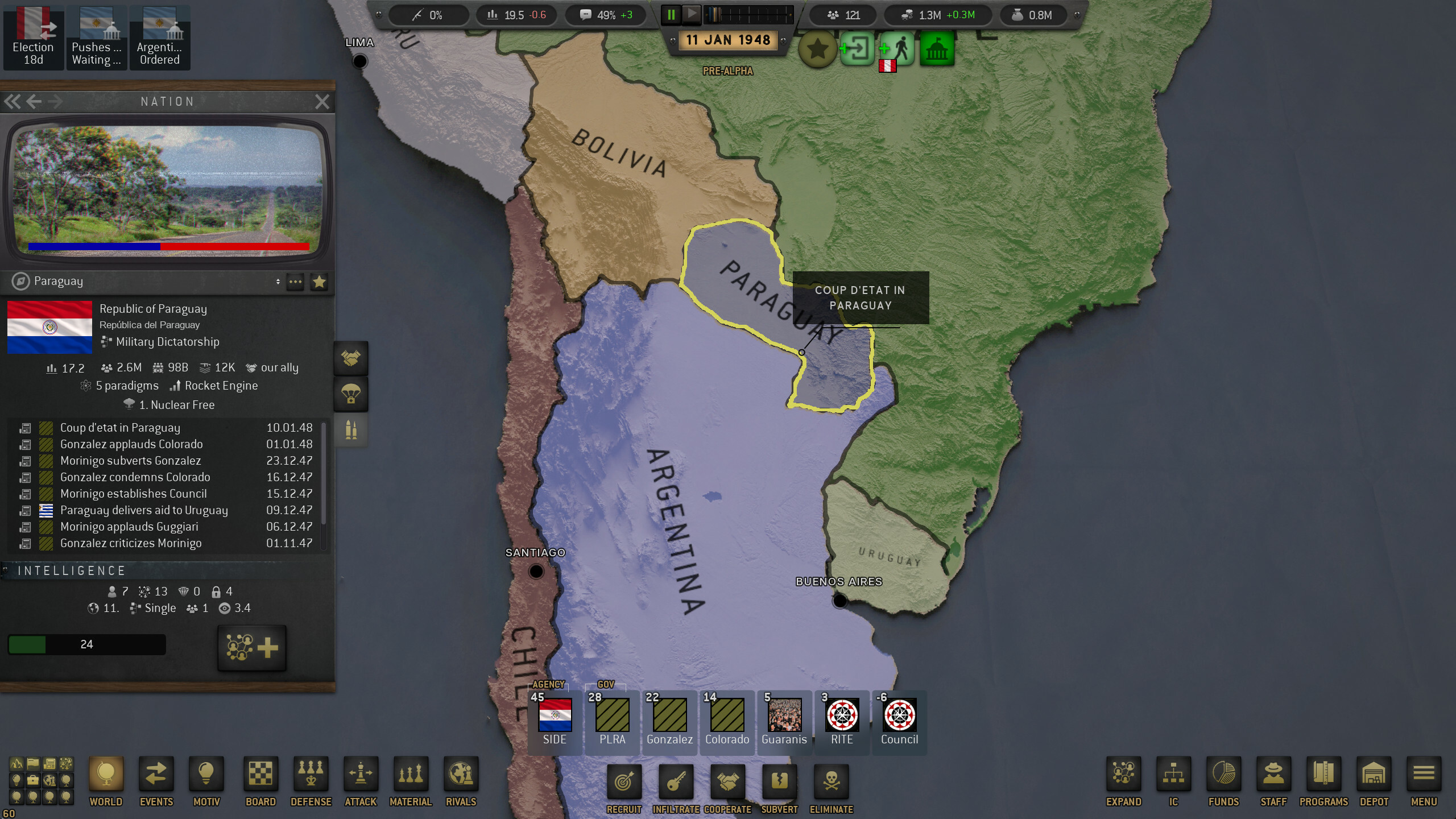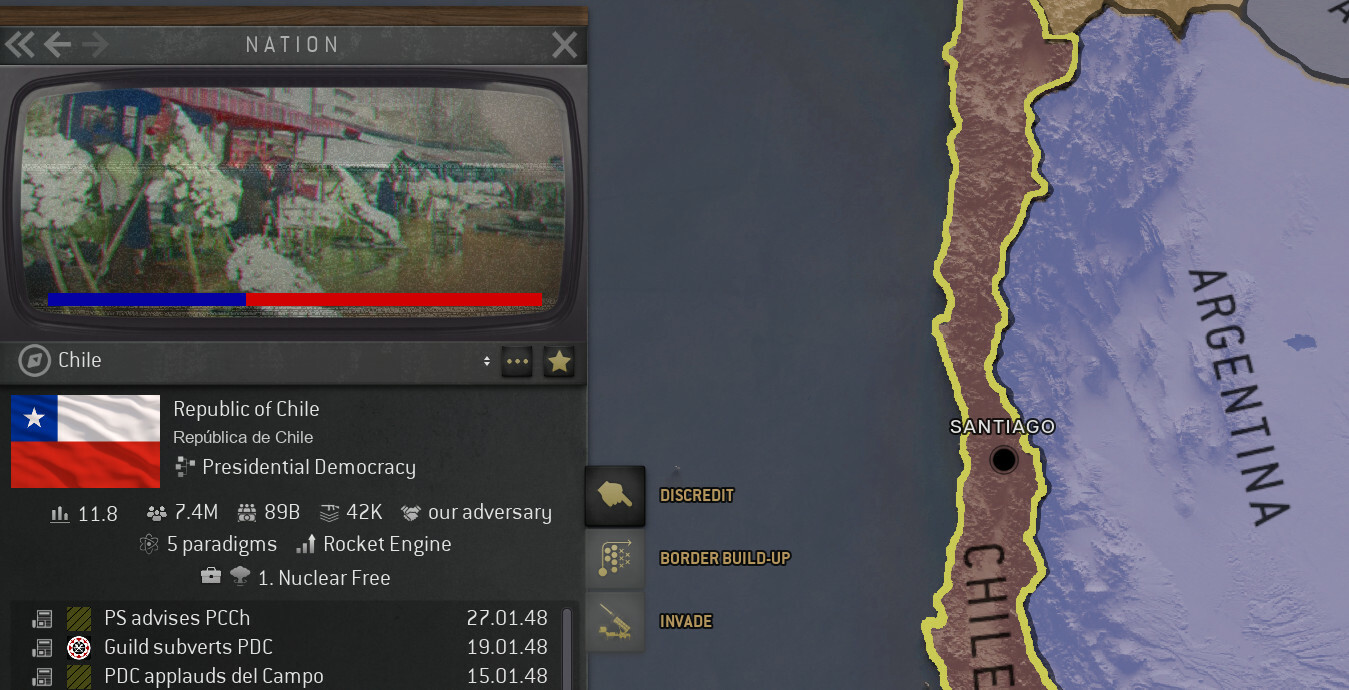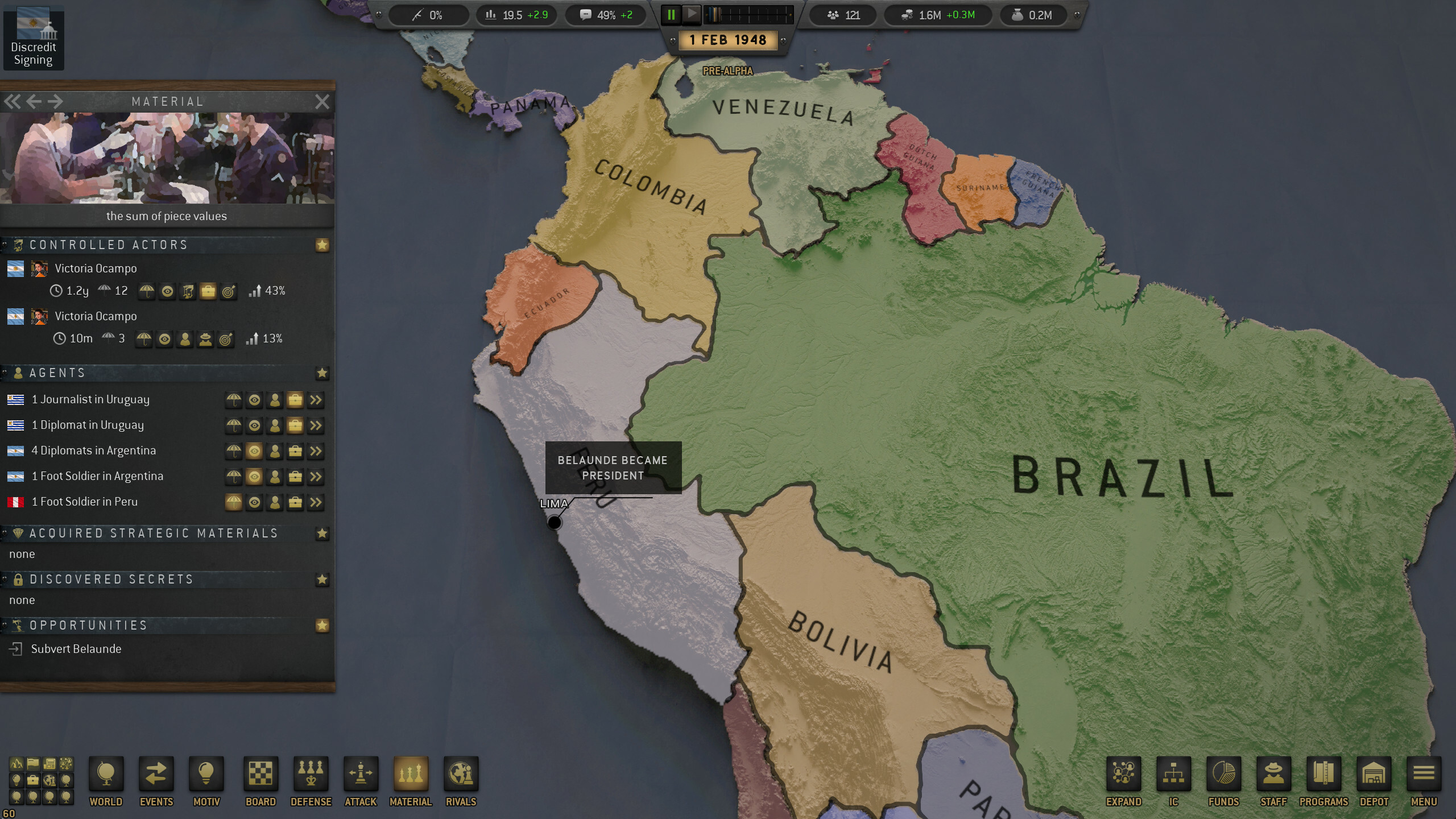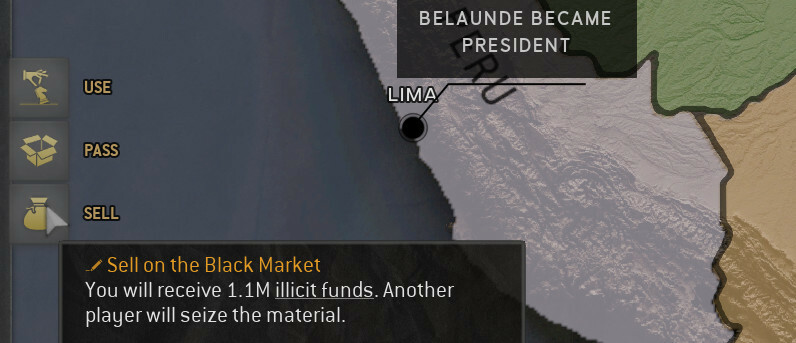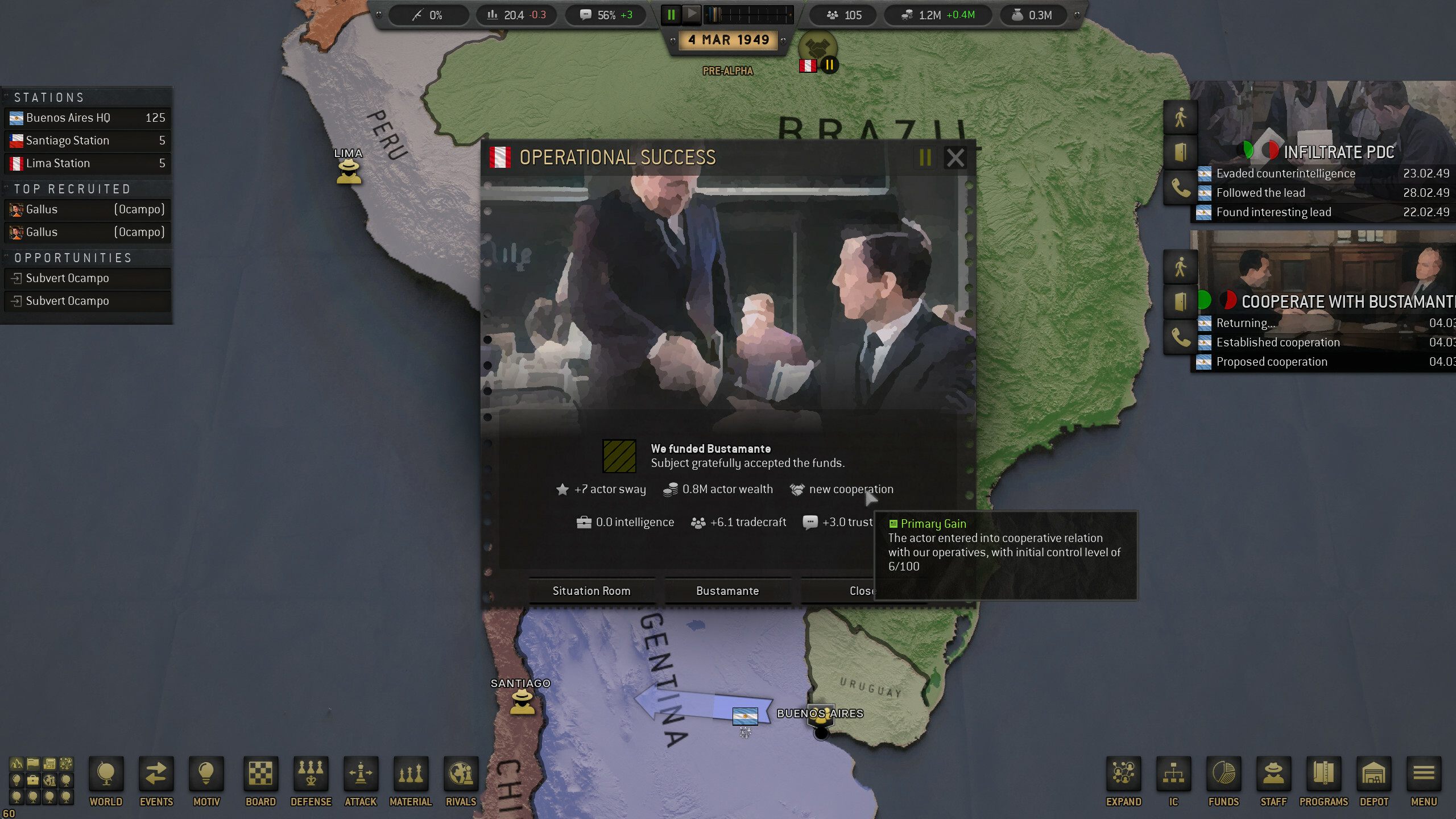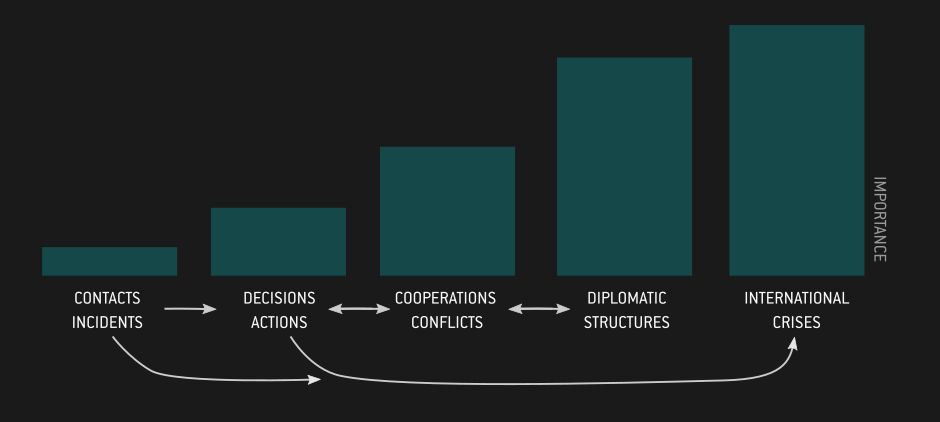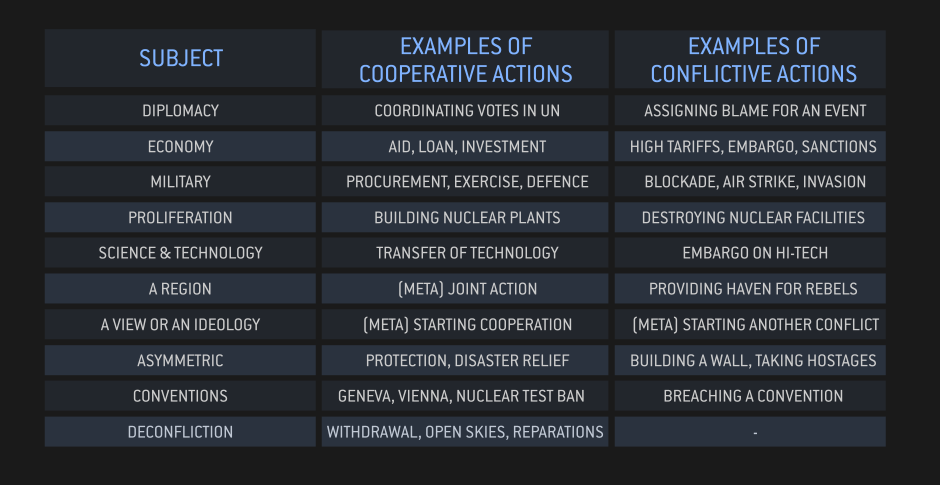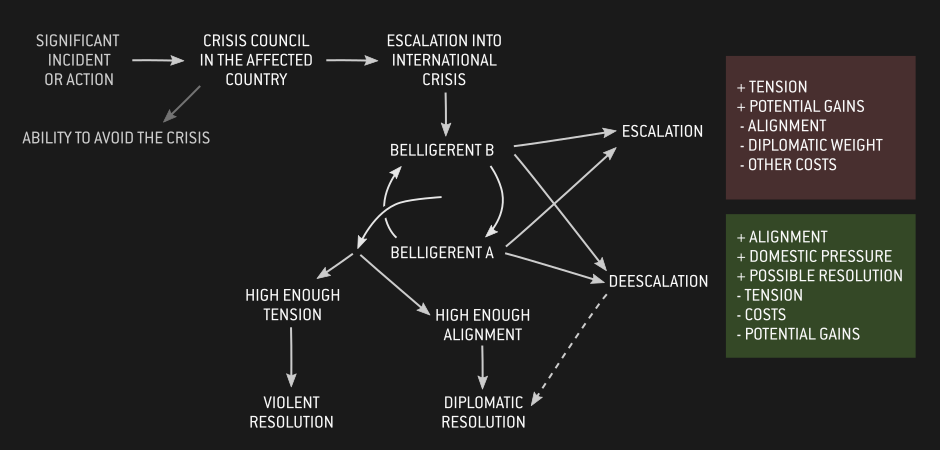
https://espiocracy.com

Take charge of the intelligence agency of your choice as the Cold War begins. Working from the shadows in this grand strategy game, you will influence the world using a variety of tools including agents, propaganda, proxy wars, assassinations, and coups. As an Iron Curtain descends across Europe, the era of the espiocrat begins.

As the world recovers from the devastation of World War 2, new alliances are already being drawn. Relations have begun to deteriorate between the two superpowers, and new political ideologies have taken hold. From the division of Germany to the Italian Referendum and Czechoslovak elections, tensions are building, and your agency fights at the front lines of a silent war.
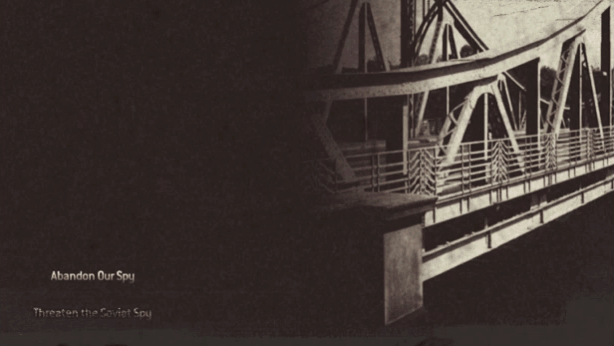

Target and manipulate geopolitically active individuals, organizations, and sectors. These “actors” have their own agendas and will seek to spread their ideologies and policies as they move among nations.
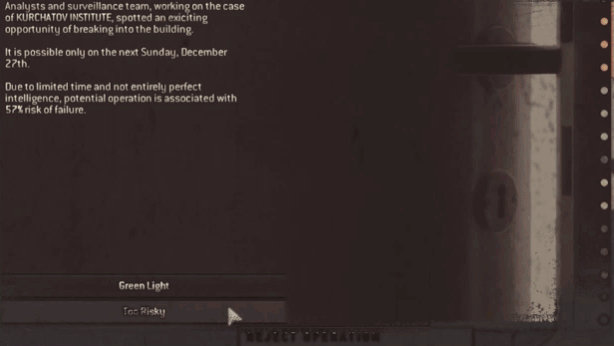

In an era where open conflict is constrained, military conquest is rare, and technological asymmetry is prevalent, the subtle hand of espionage takes center stage. A shift in public opinion can influence an election or create unlikely allies, while a falsified casus belli can be claimed to justify acts of aggression. Whether arming and training guerilla forces or creating disinformation to discredit influential politicians, your agency fights a shadow war.
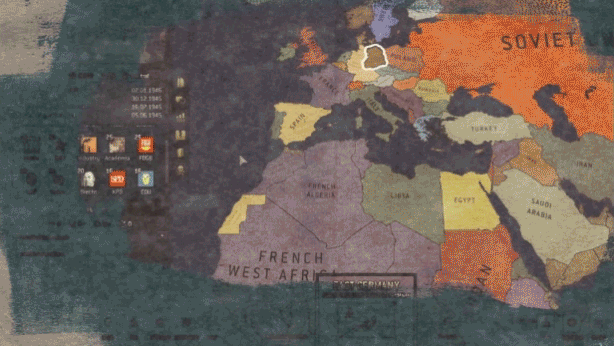
Espiocracy is an espionage grand strategy game where you lead the intelligence agency of one of 74 playable countries. Rewrite history from the shadows as you influence ideologies, stage coups, and wage proxy wars. Subterfuge takes center stage as you establish a new world order.
ABOUT THIS GAME

Take charge of the intelligence agency of your choice as the Cold War begins. Working from the shadows in this grand strategy game, you will influence the world using a variety of tools including agents, propaganda, proxy wars, assassinations, and coups. As an Iron Curtain descends across Europe, the era of the espiocrat begins.

As the world recovers from the devastation of World War 2, new alliances are already being drawn. Relations have begun to deteriorate between the two superpowers, and new political ideologies have taken hold. From the division of Germany to the Italian Referendum and Czechoslovak elections, tensions are building, and your agency fights at the front lines of a silent war.
- Choose one of 74 countries and lead its intelligence agency from the start of the Cold War. Whether your chosen nation loses a war, suffers a coup, or has a change of leadership due to foreign actions, your agency remains resolute, working to further your country’s interests through the twists and turns of the 20th century and beyond.
- Prepare for nuclear brinkmanship, the Space Race, decolonization, and the instability and proxy wars that follow as you navigate a world balanced on a knife edge.
- Deploy foreign and domestic agents to manipulate public opinion, support and establish political factions, stoke the flames of independence, ignite proxy wars, and shatter the status quo with coups. Your country’s leader may request your input on major decisions such as invading a neighbor or forming an alliance, and you can use your influence to trigger wars or turn the tide of diplomatic negotiations.


Target and manipulate geopolitically active individuals, organizations, and sectors. These “actors” have their own agendas and will seek to spread their ideologies and policies as they move among nations.
- Actors can include historically accurate individuals like celebrities, inventors, and authors, organizations like political parties, trade unions, and guerilla forces, or even entire sectors, such as a nation's military, law enforcement, or media.
- Actors differ in influence, competence, goals, and resources. An incompetent executive leading a nuclear power is a threat to domestic and foreign agencies alike.


In an era where open conflict is constrained, military conquest is rare, and technological asymmetry is prevalent, the subtle hand of espionage takes center stage. A shift in public opinion can influence an election or create unlikely allies, while a falsified casus belli can be claimed to justify acts of aggression. Whether arming and training guerilla forces or creating disinformation to discredit influential politicians, your agency fights a shadow war.
- Make use of 34 different types of operations: install operatives in foreign agencies, use propaganda to spread ideologies, and perform assassinations. Hand-pick and develop your own cadre of top-level operatives. Some are more technologically inclined, while others are experts at manipulating people and their emotions.
- Agents act with relative autonomy based on your orders, influenced by their own traits, histories, and biases. Operatives with certain skills might present you with unique opportunities, while others might fall under the influence of illicit substances to cope with their assignments, or worse — fall under the influence of a foreign power.
- Operatives within your agency interact with one another and can create subgroups, potentially introducing political motivations into your agency. When these operatives retire from service they can also become influential actors outside your control.

Last edited by a moderator:








